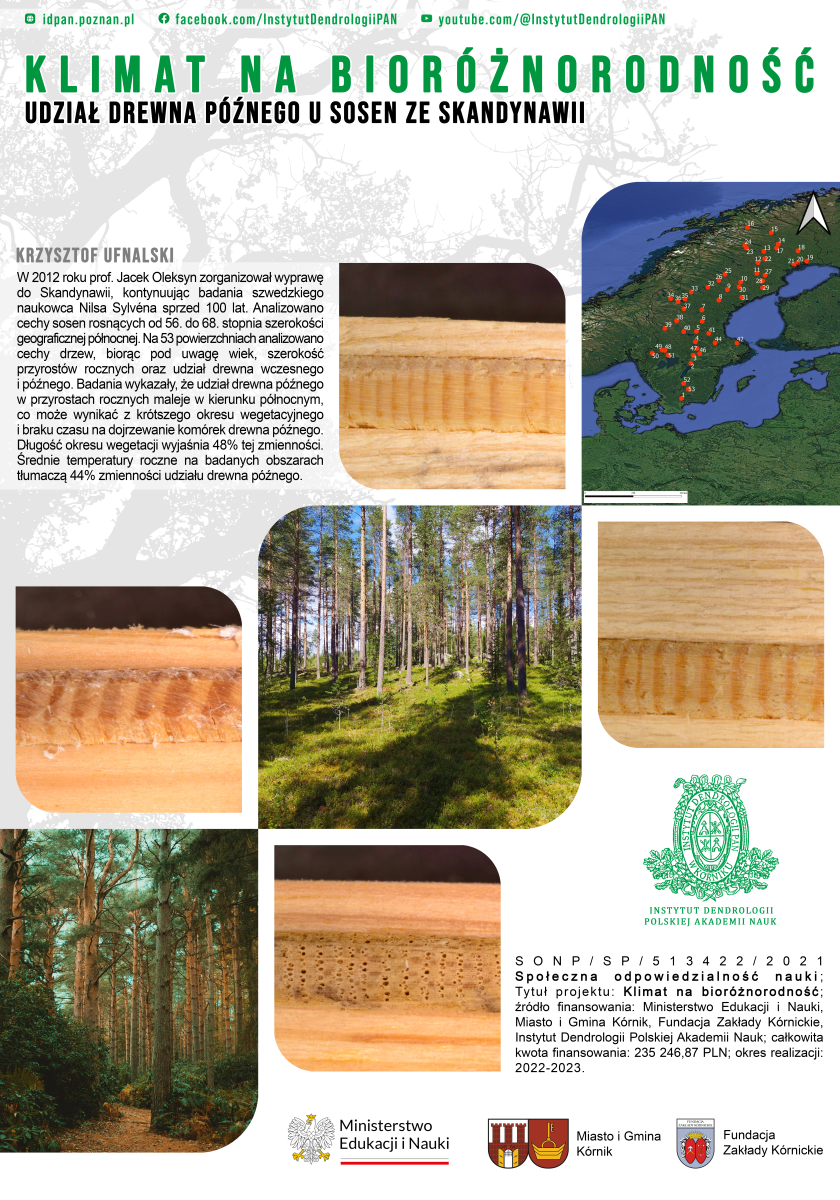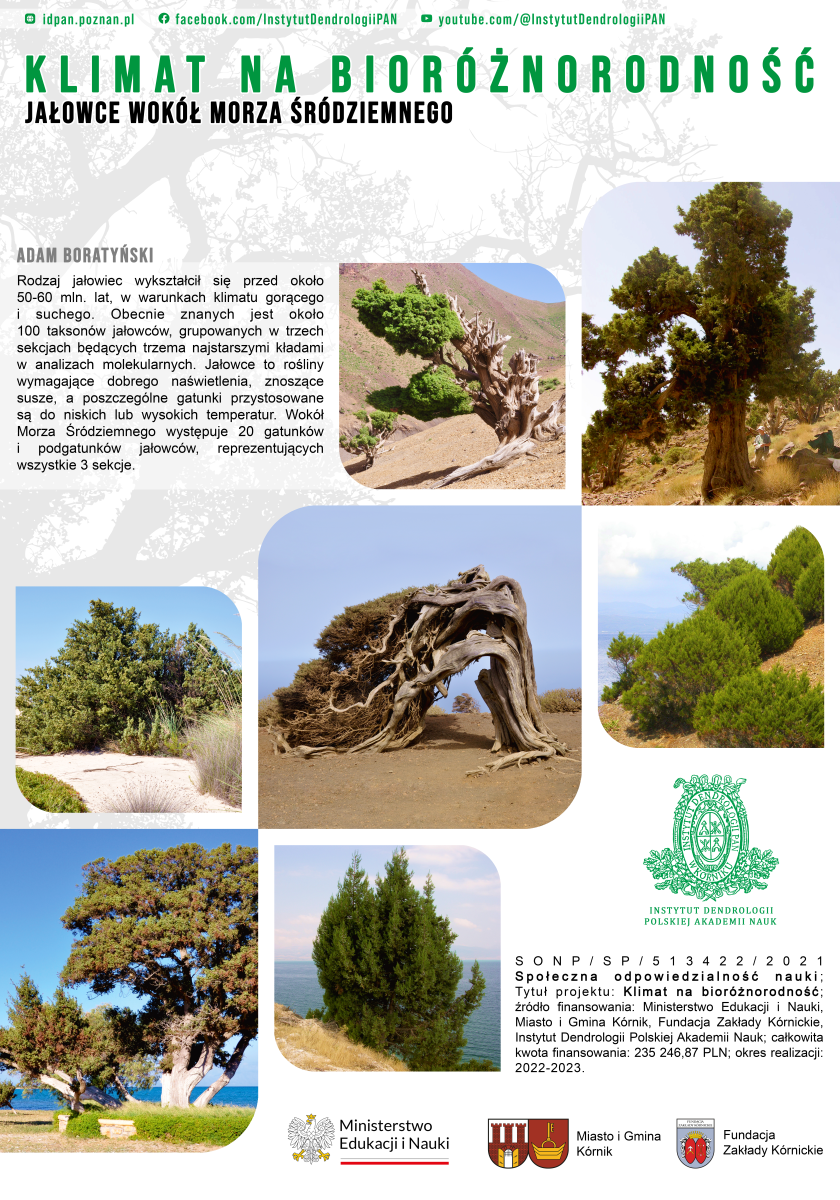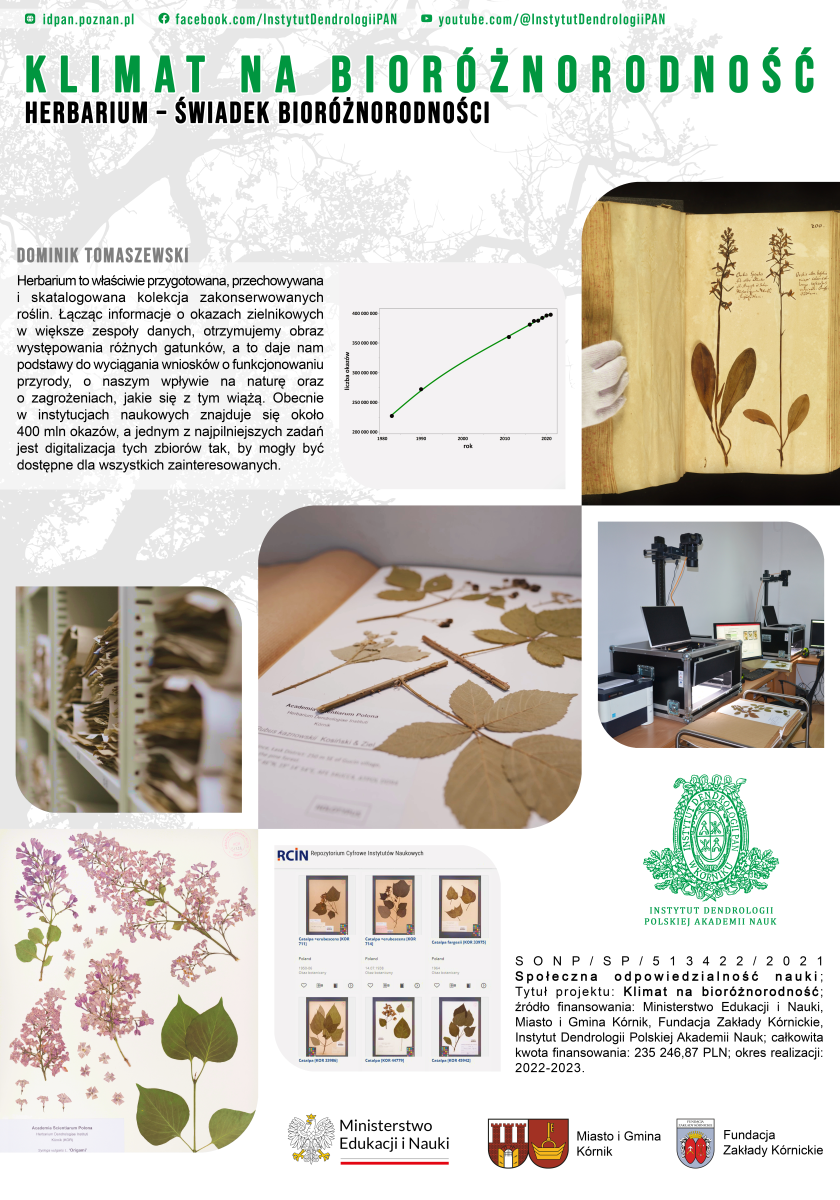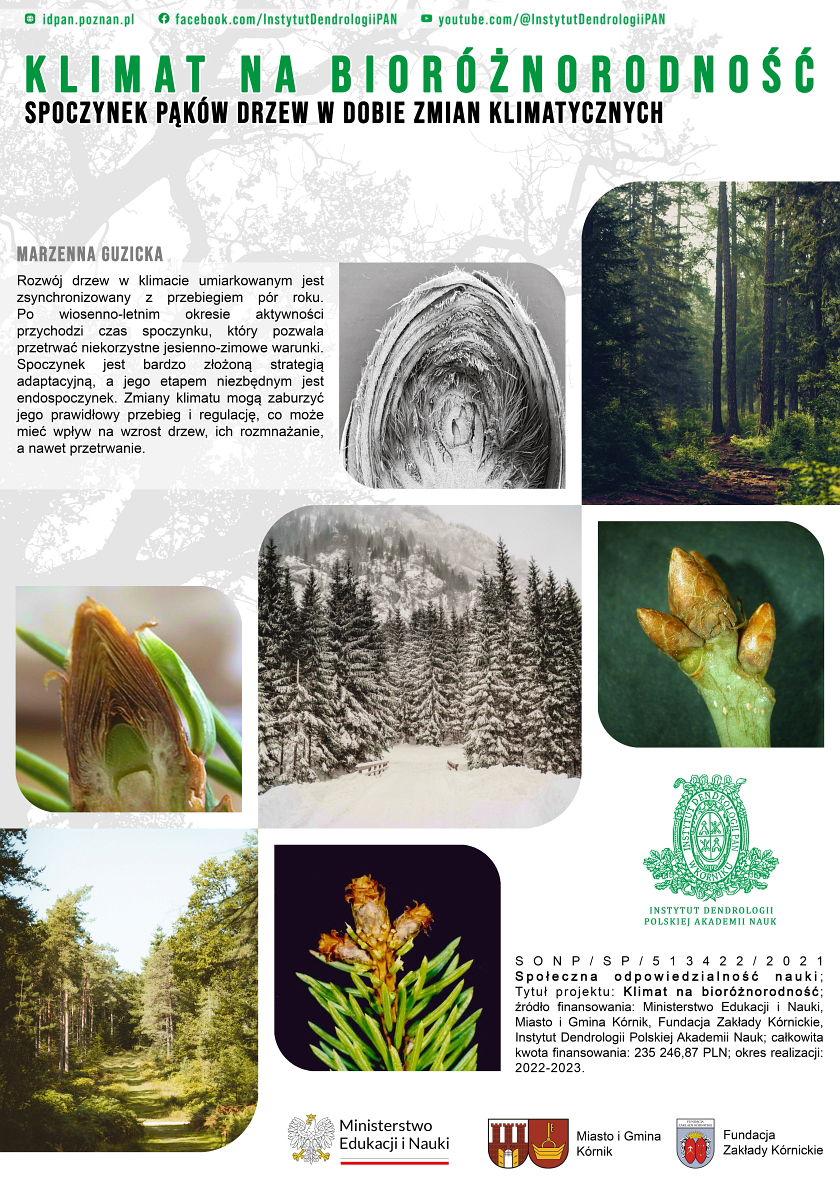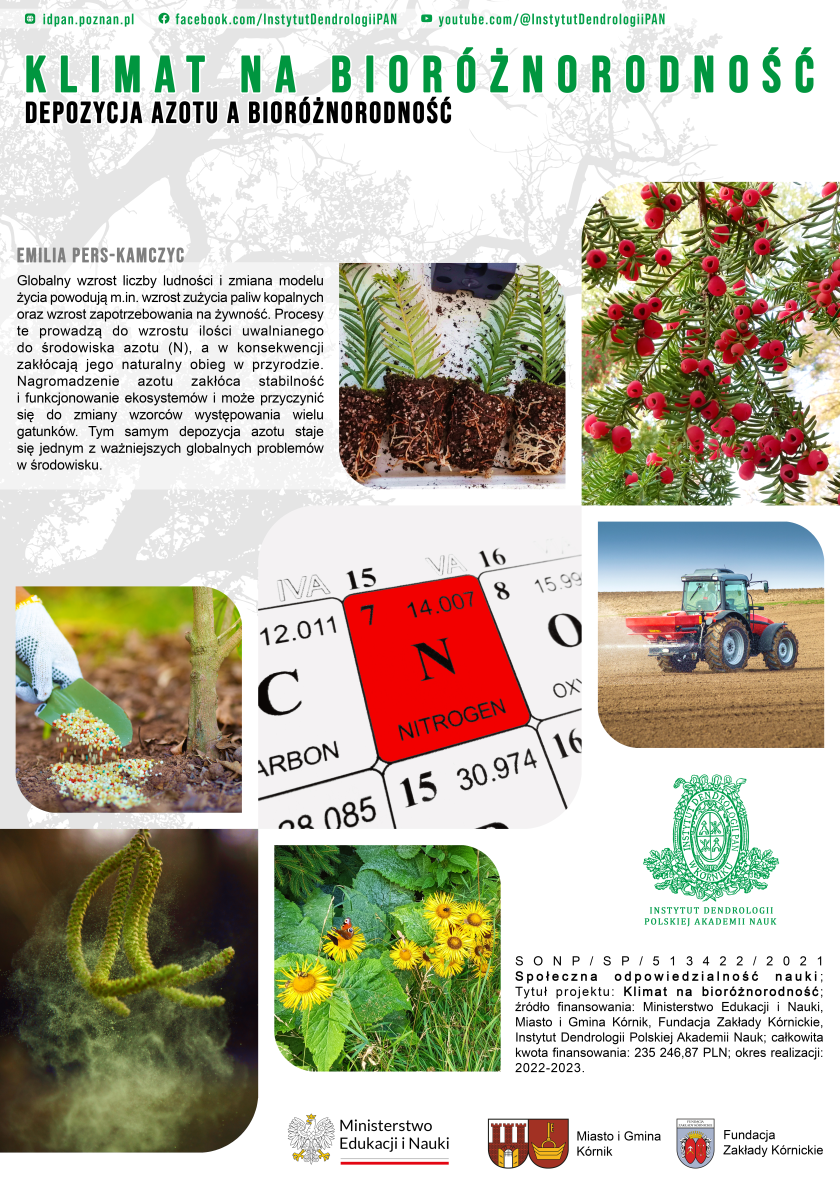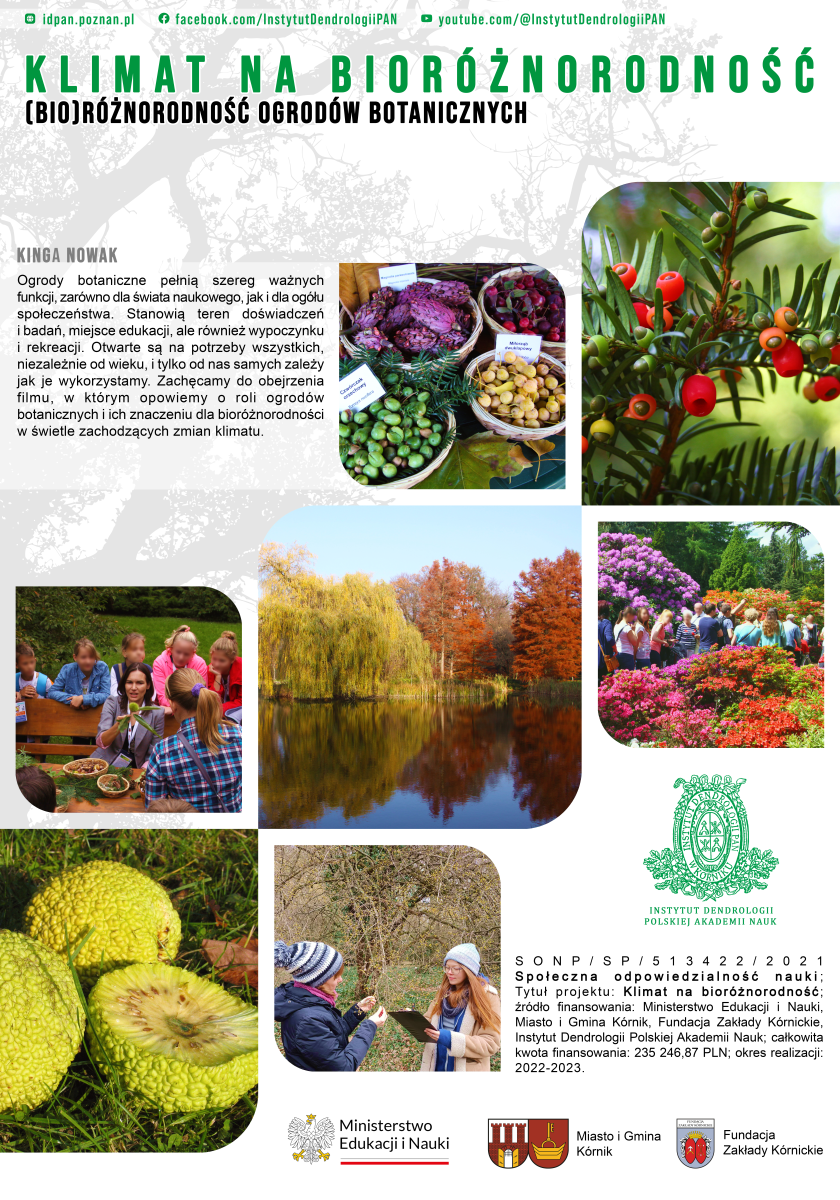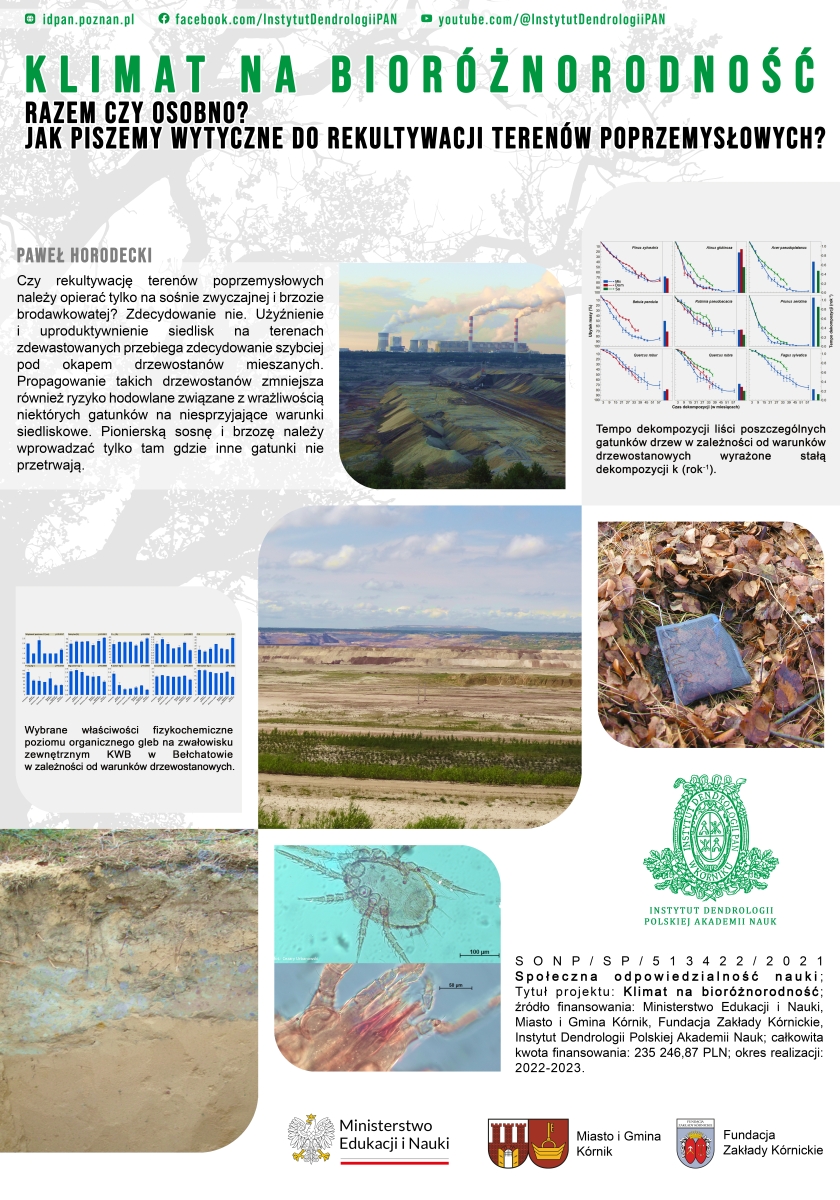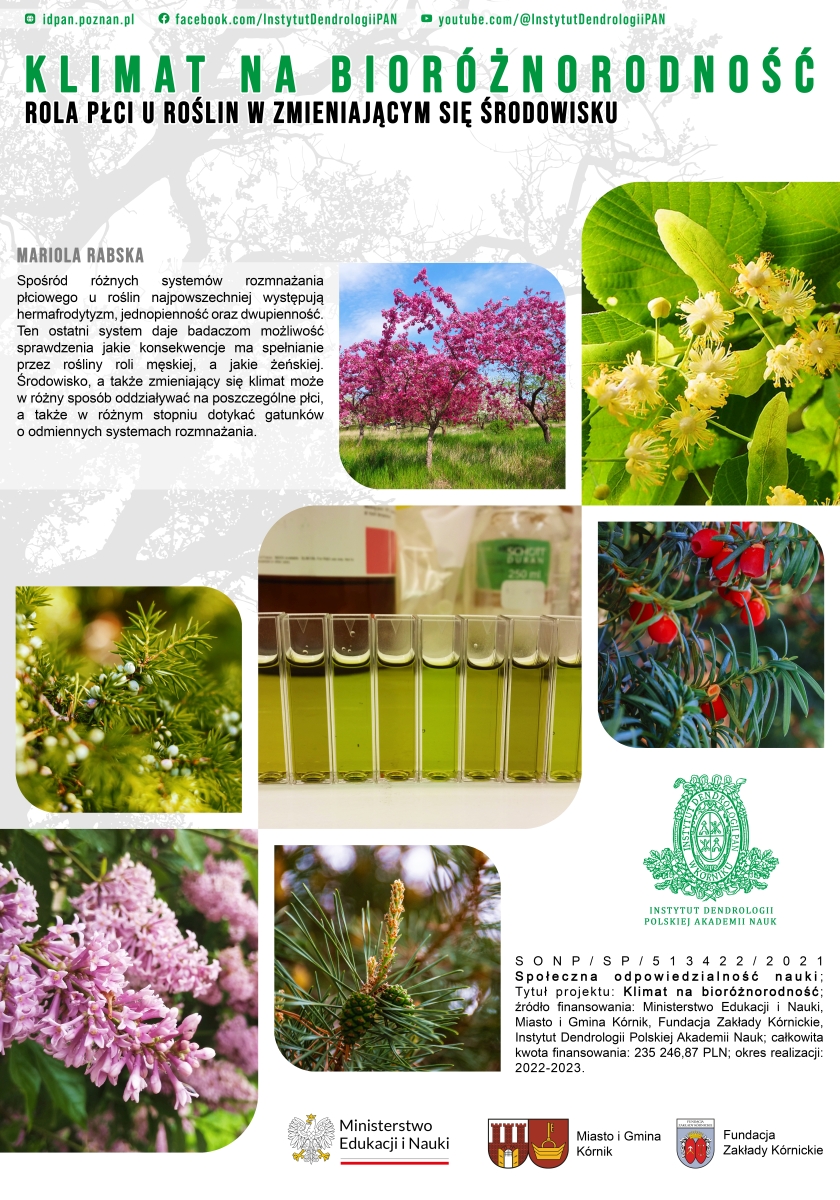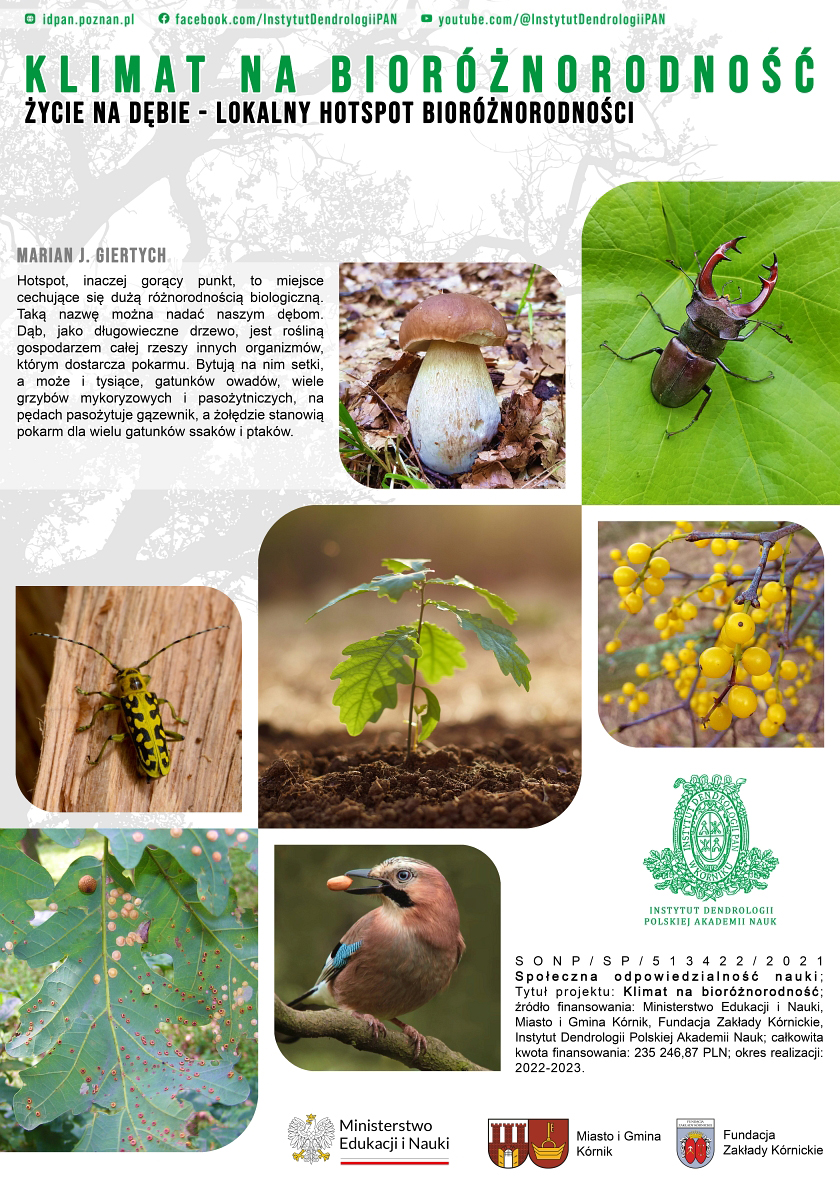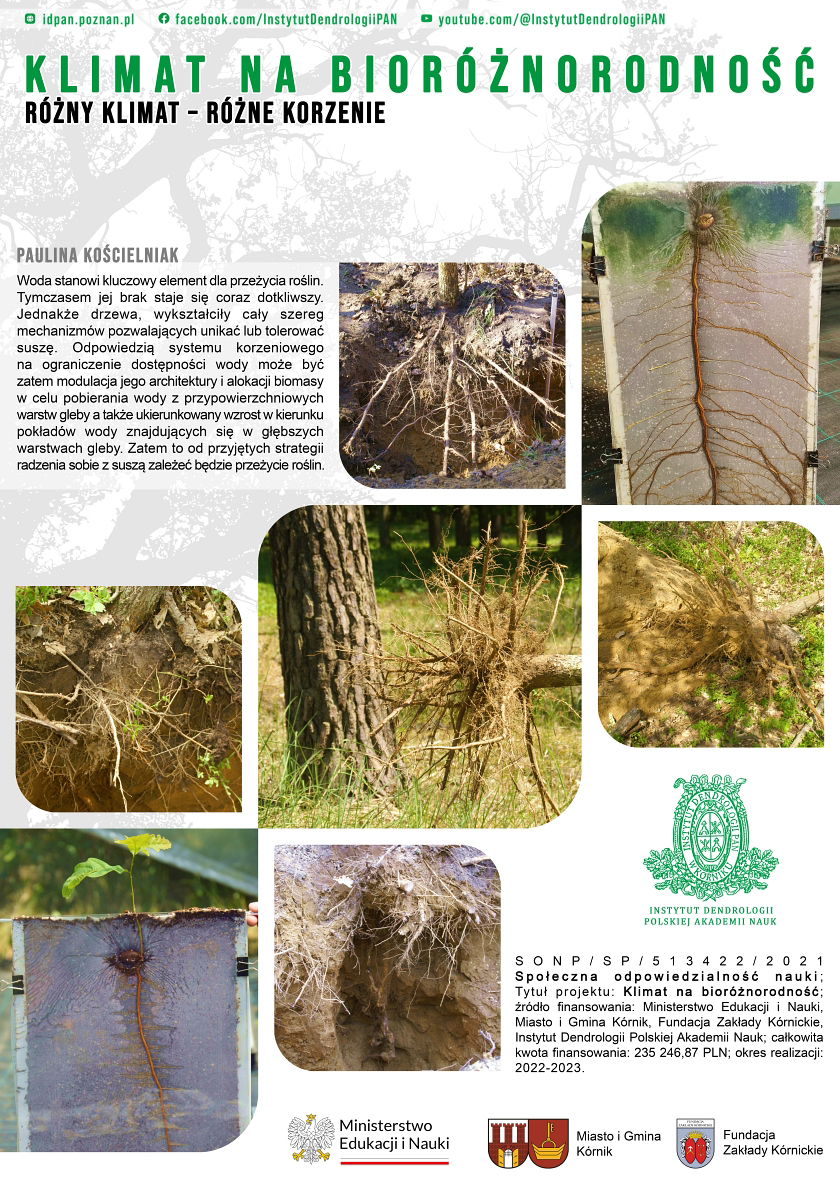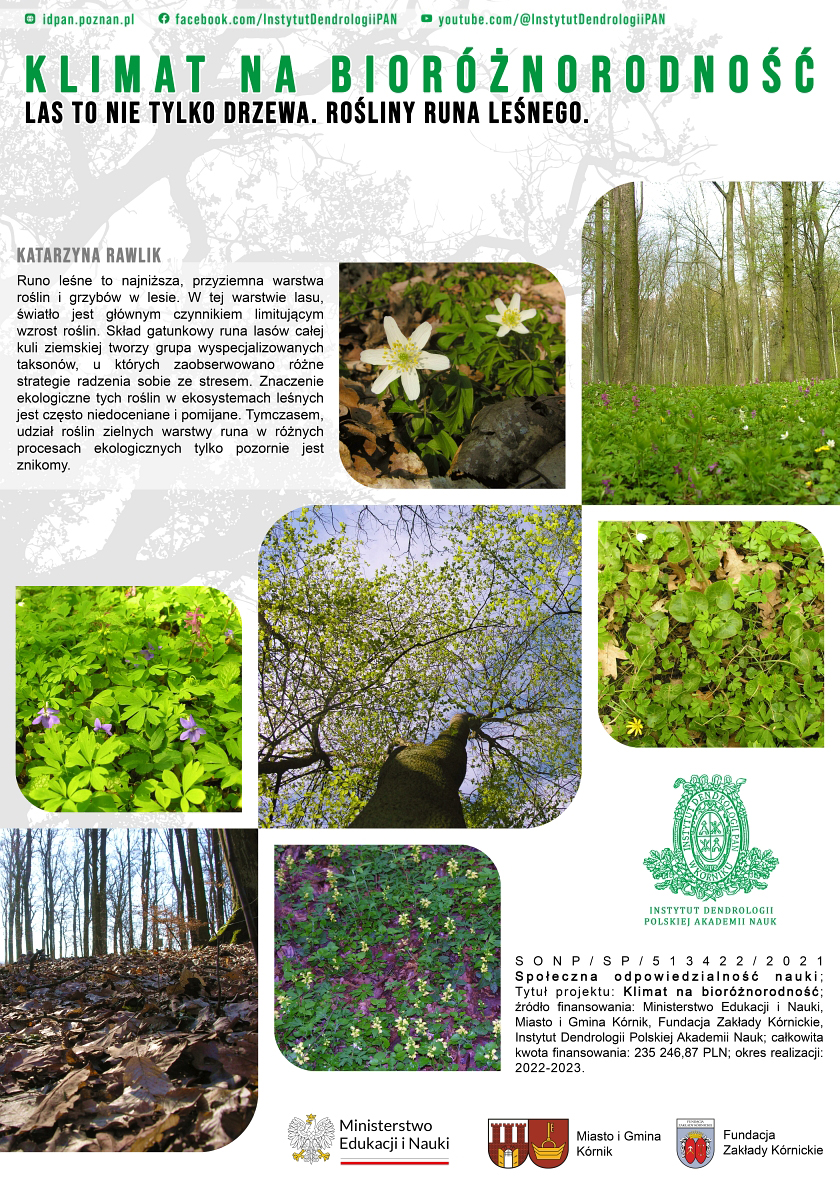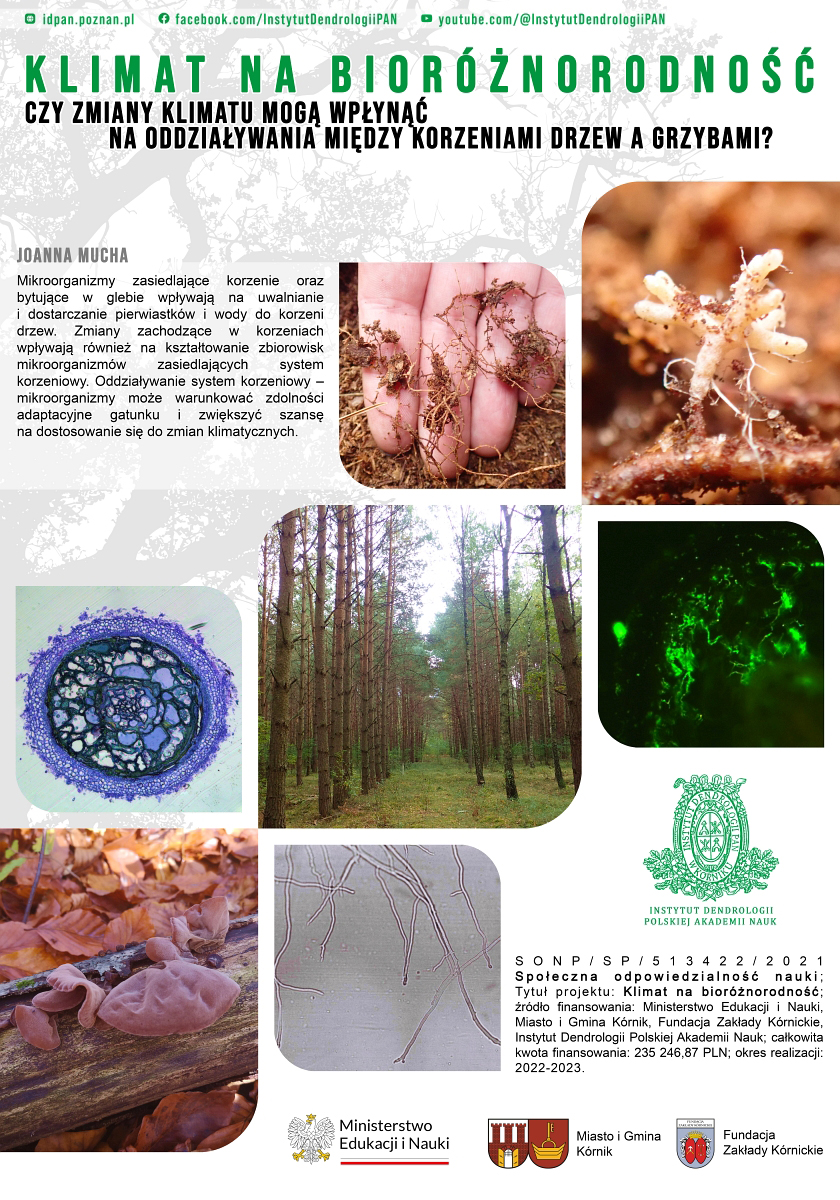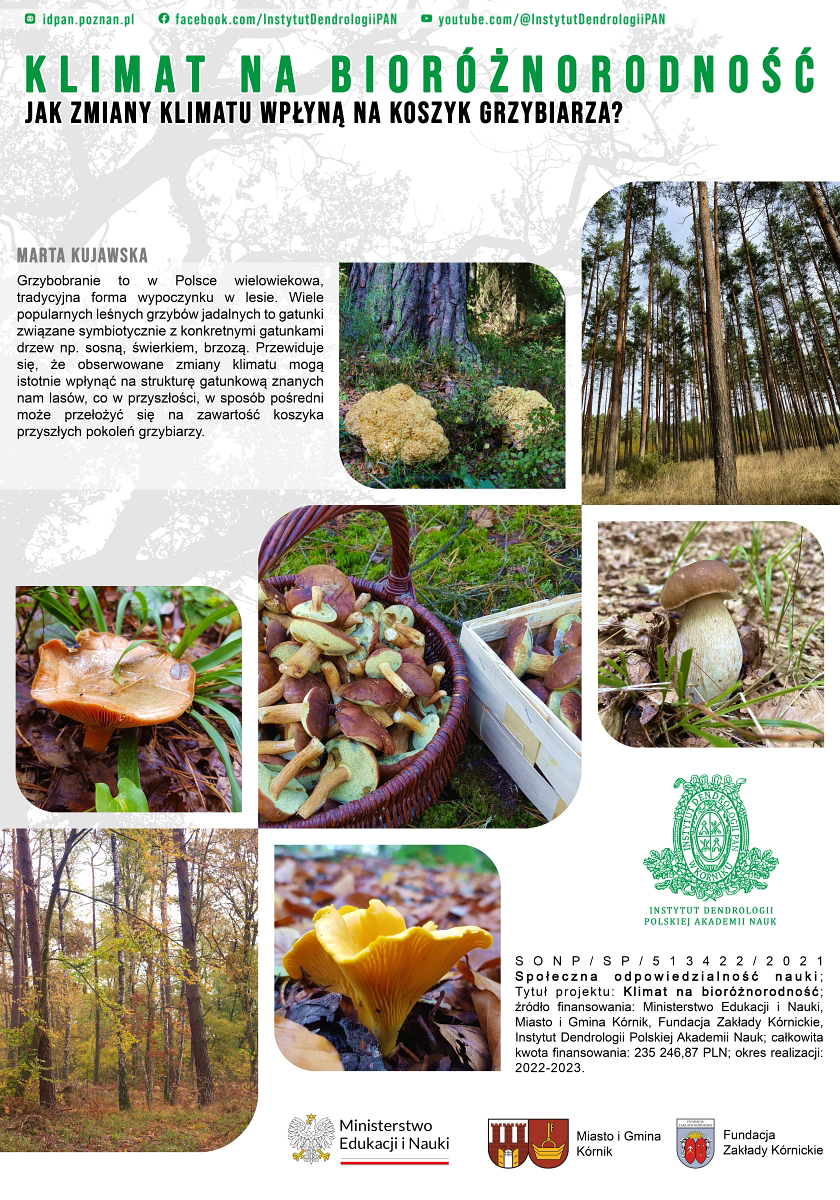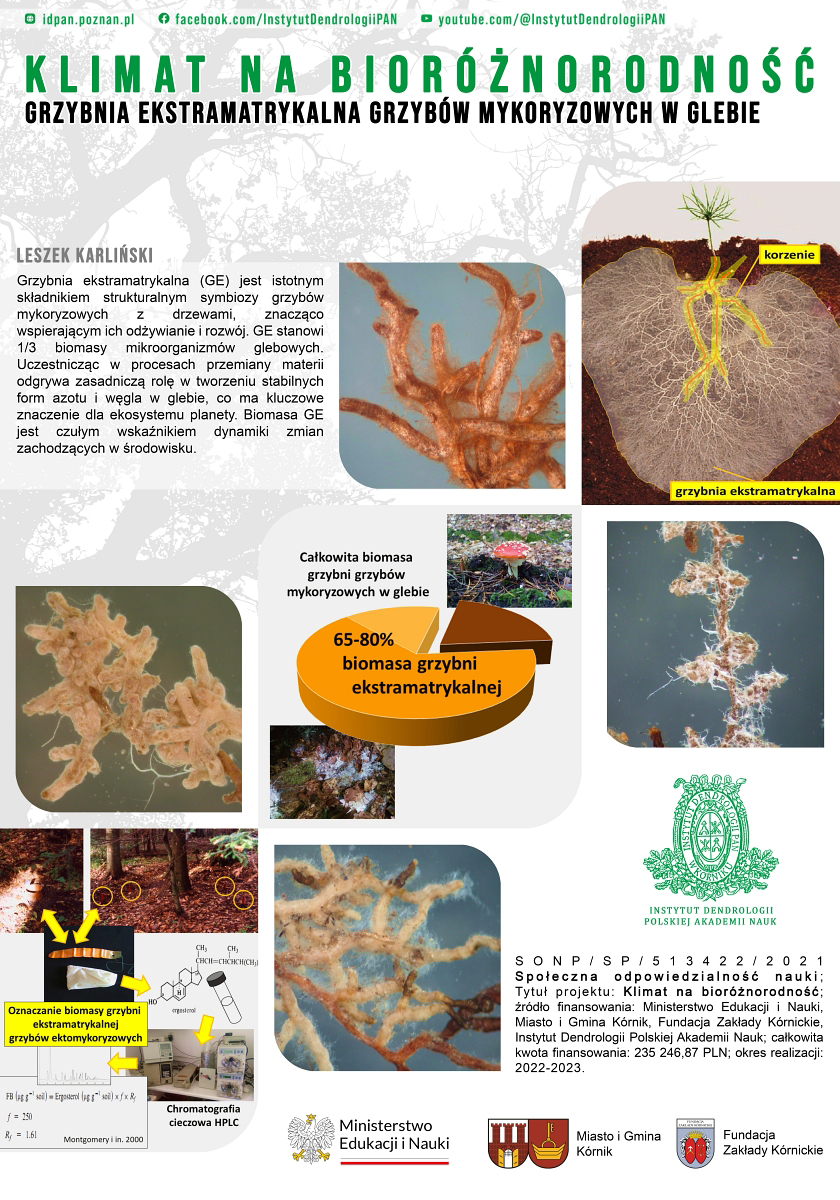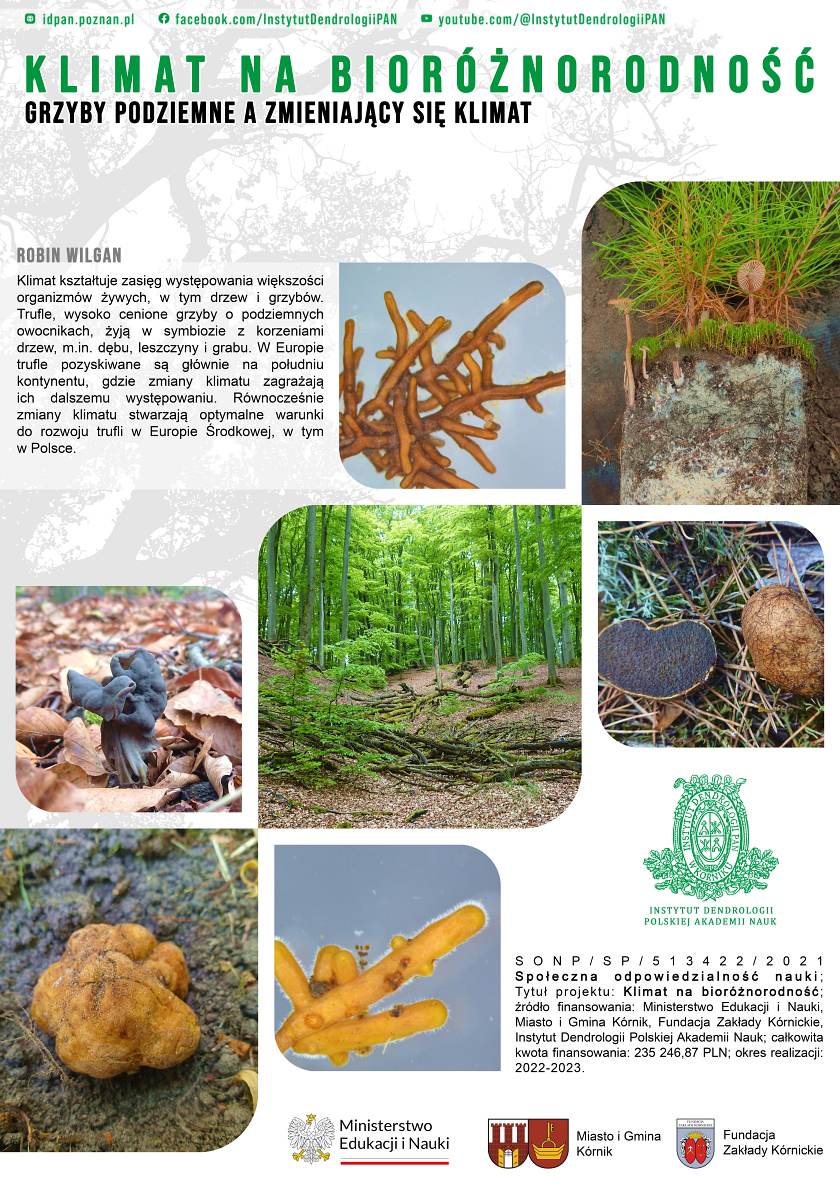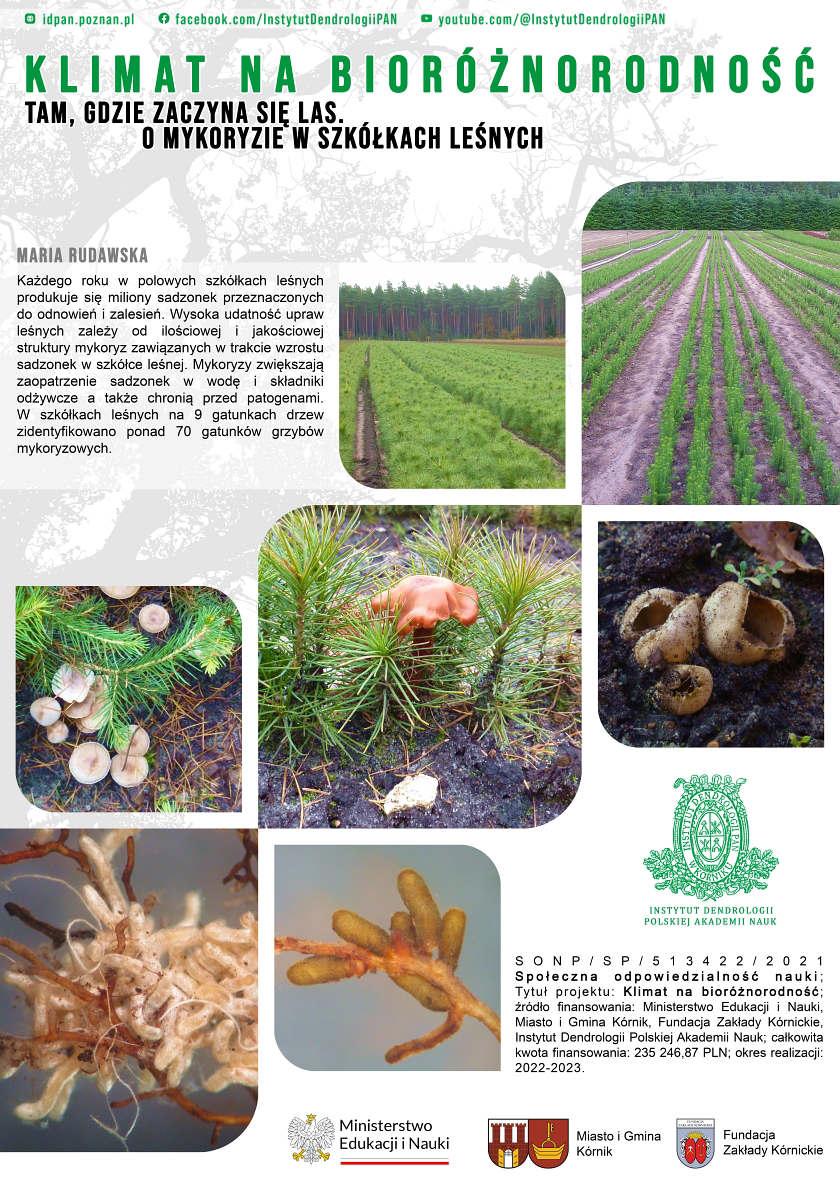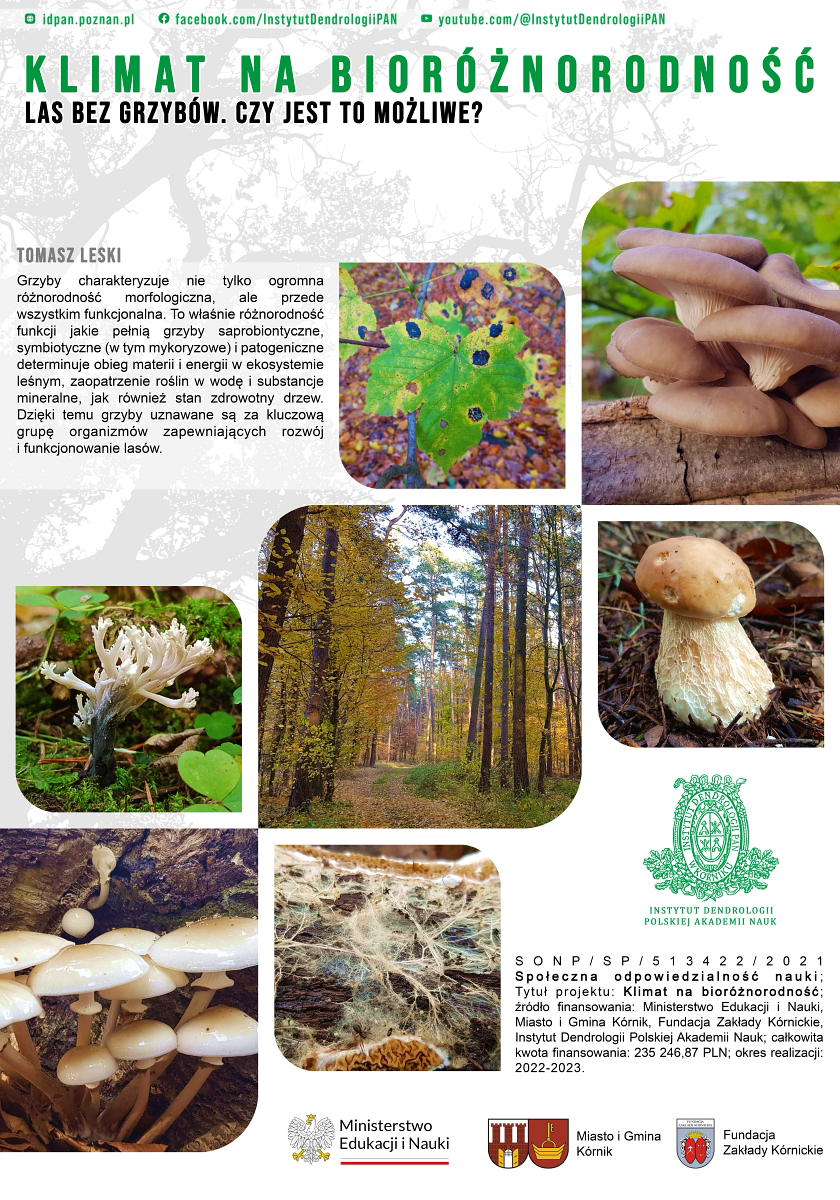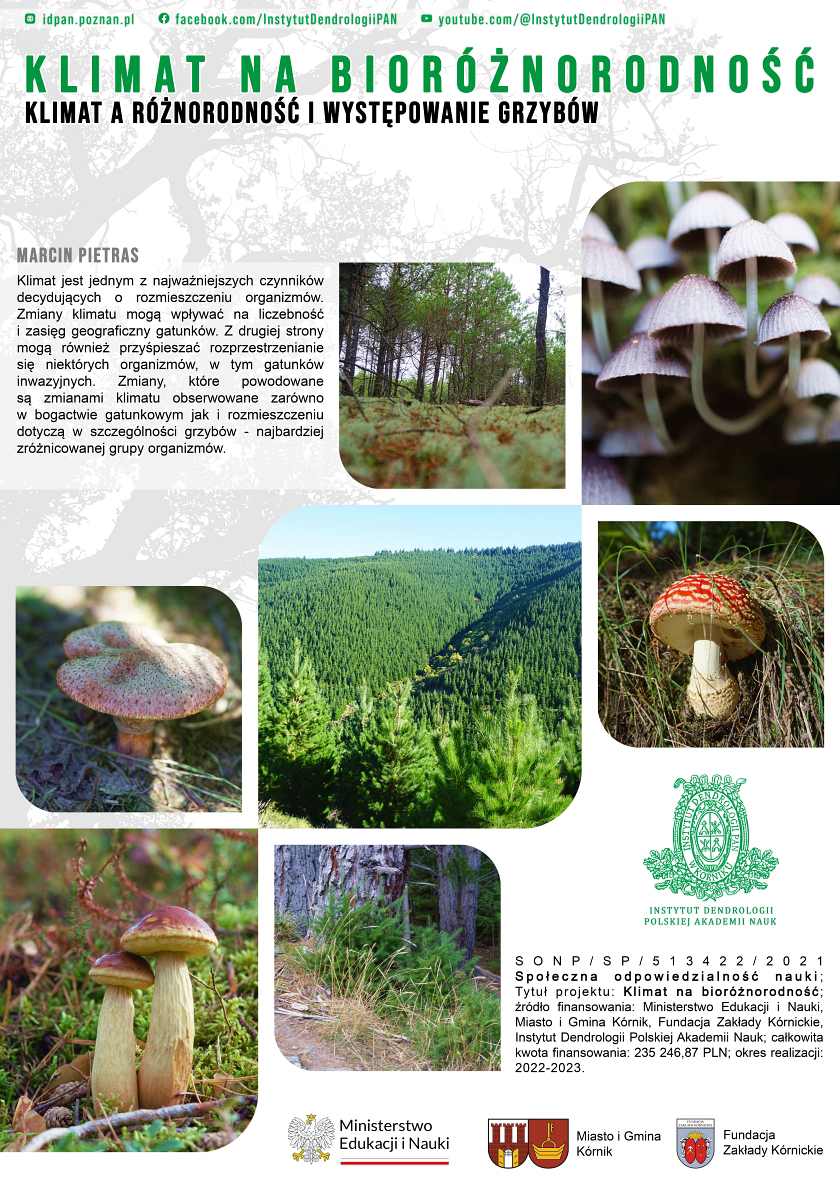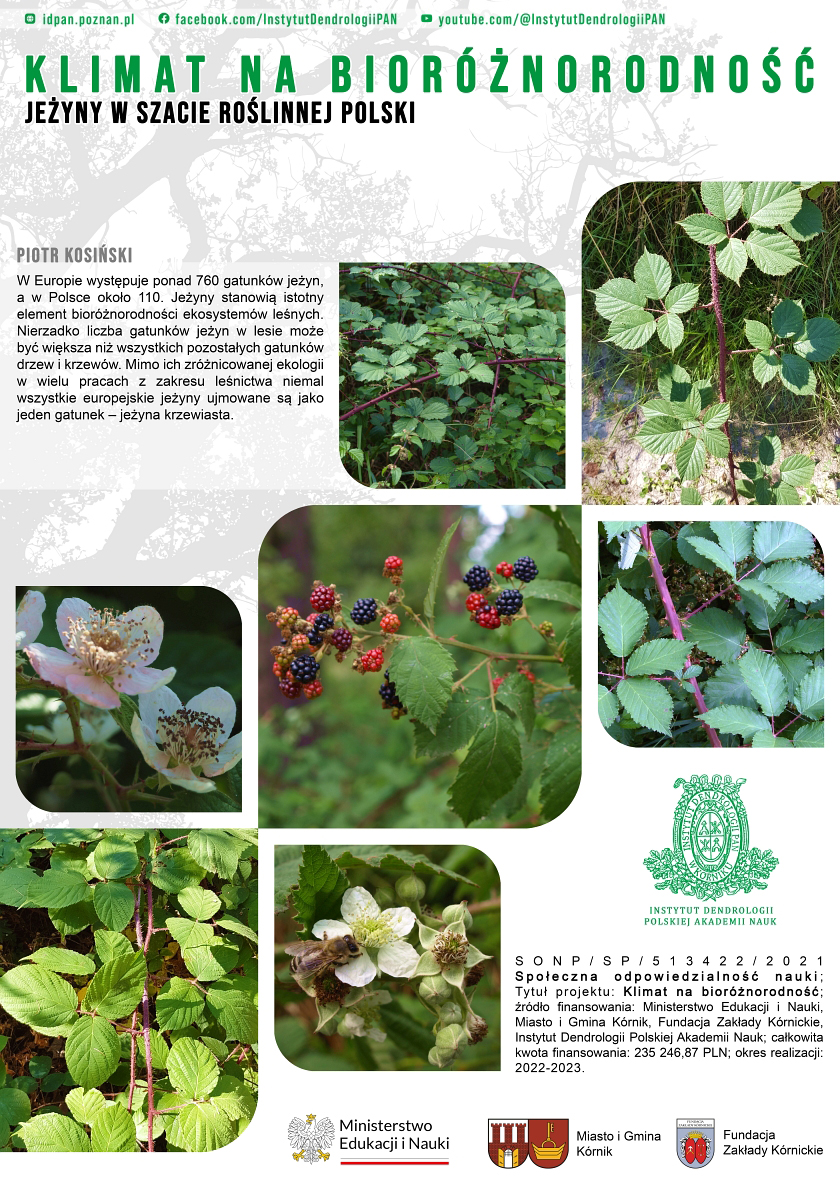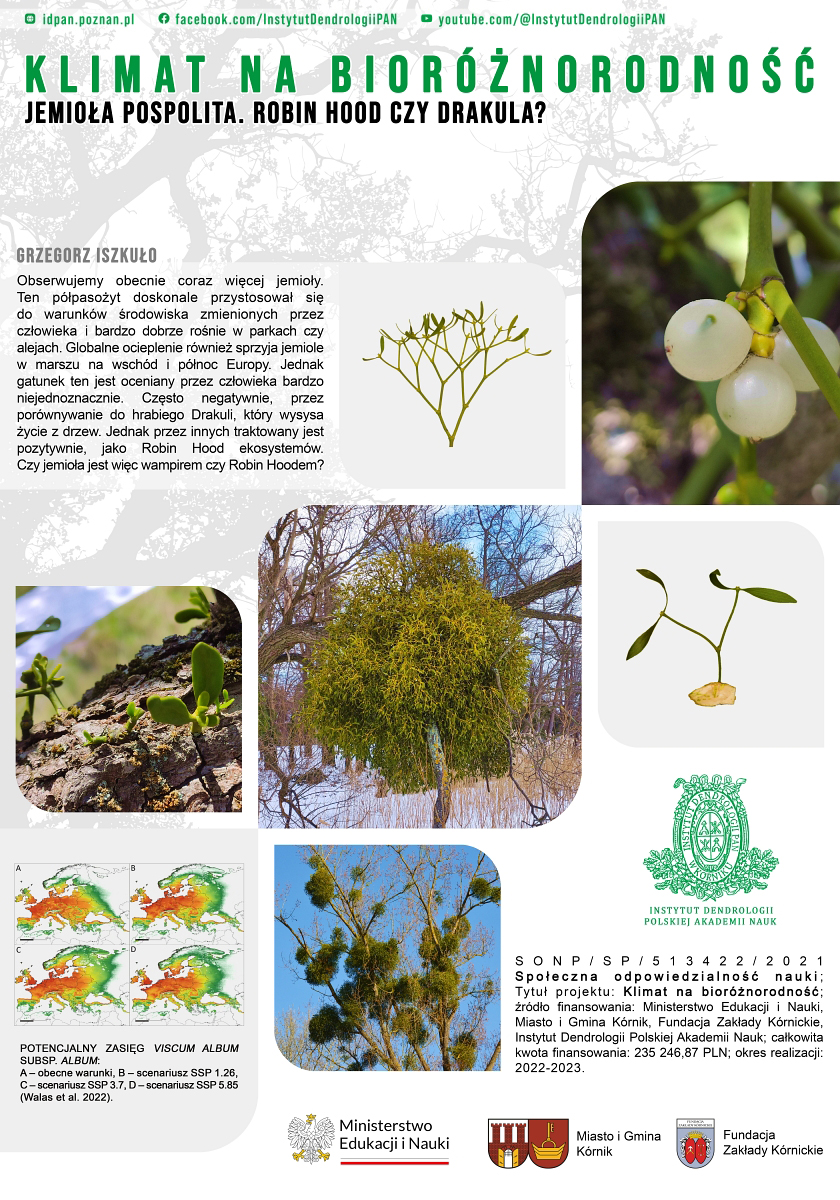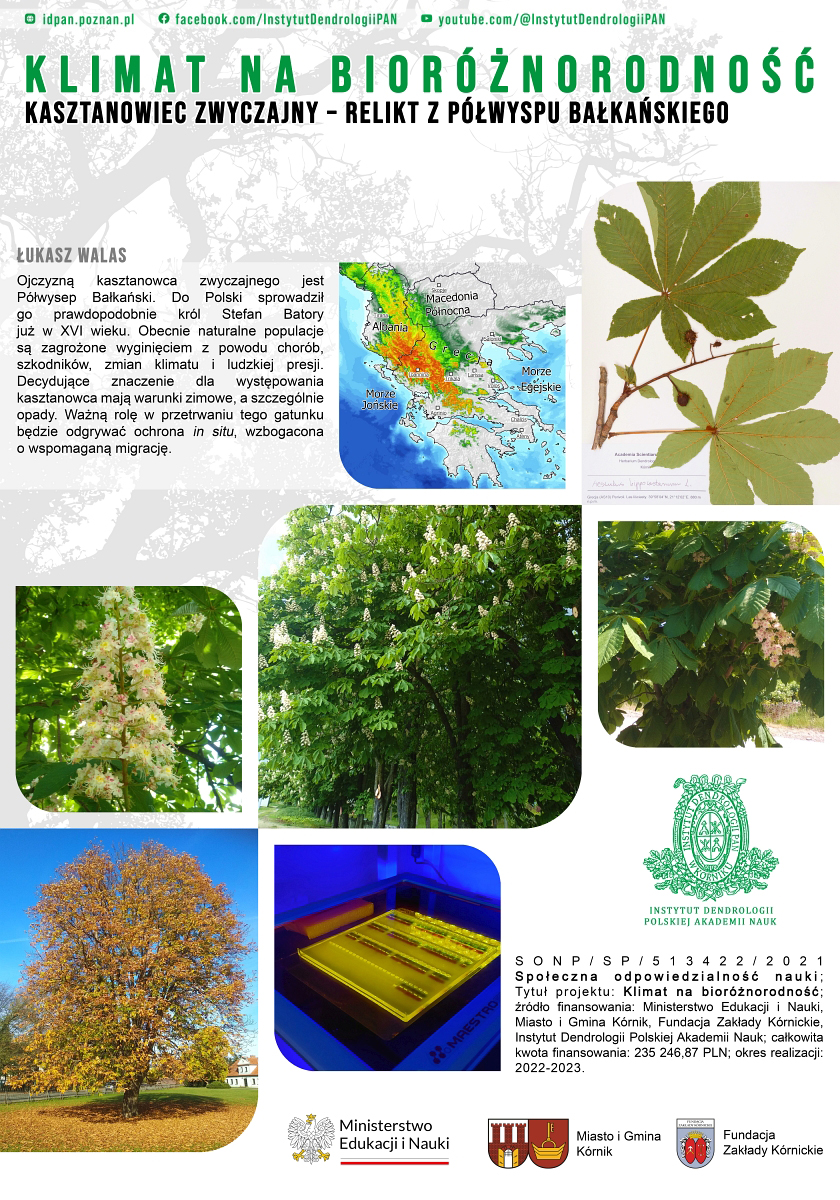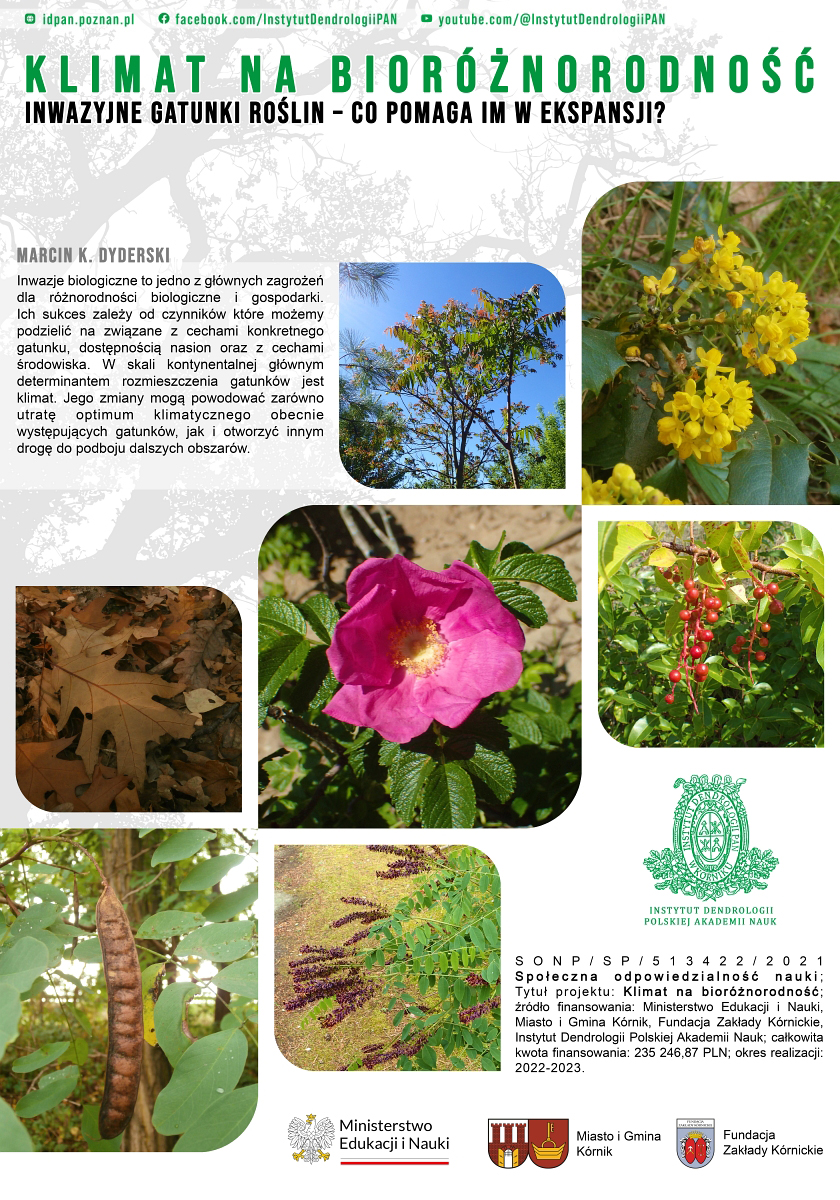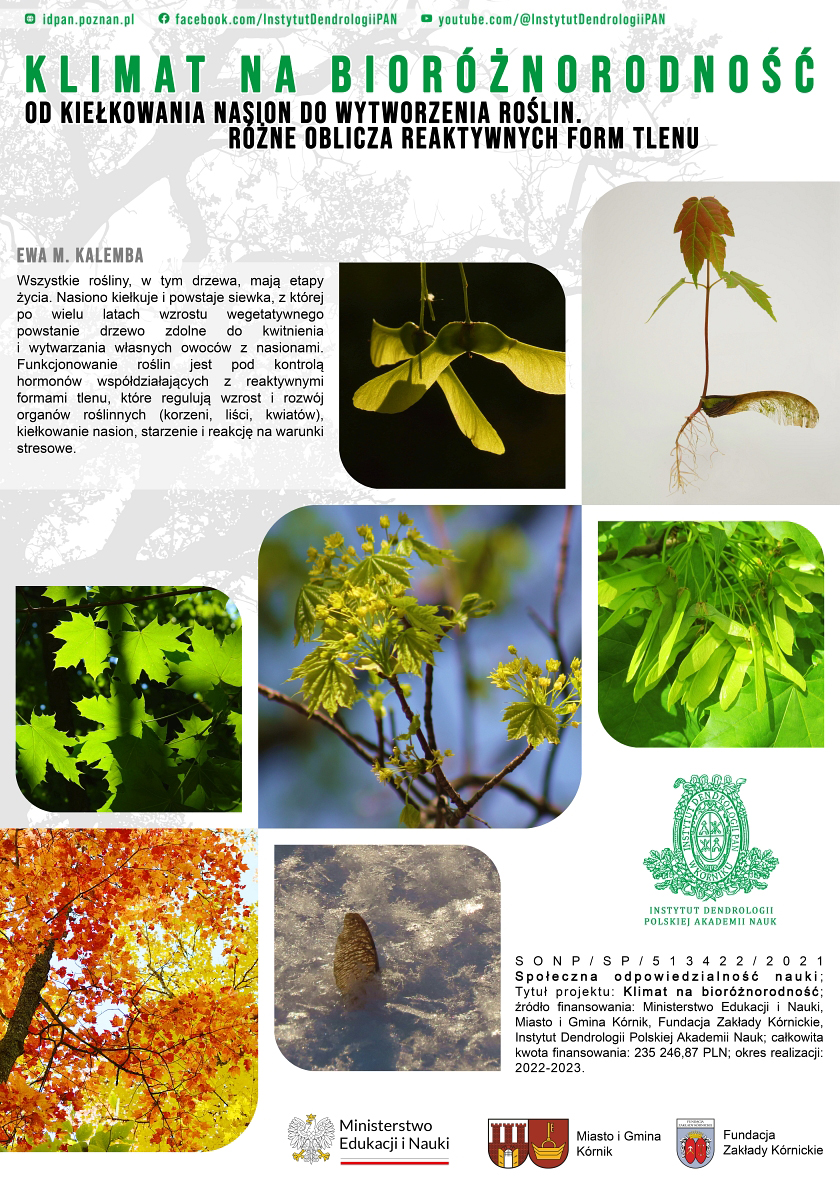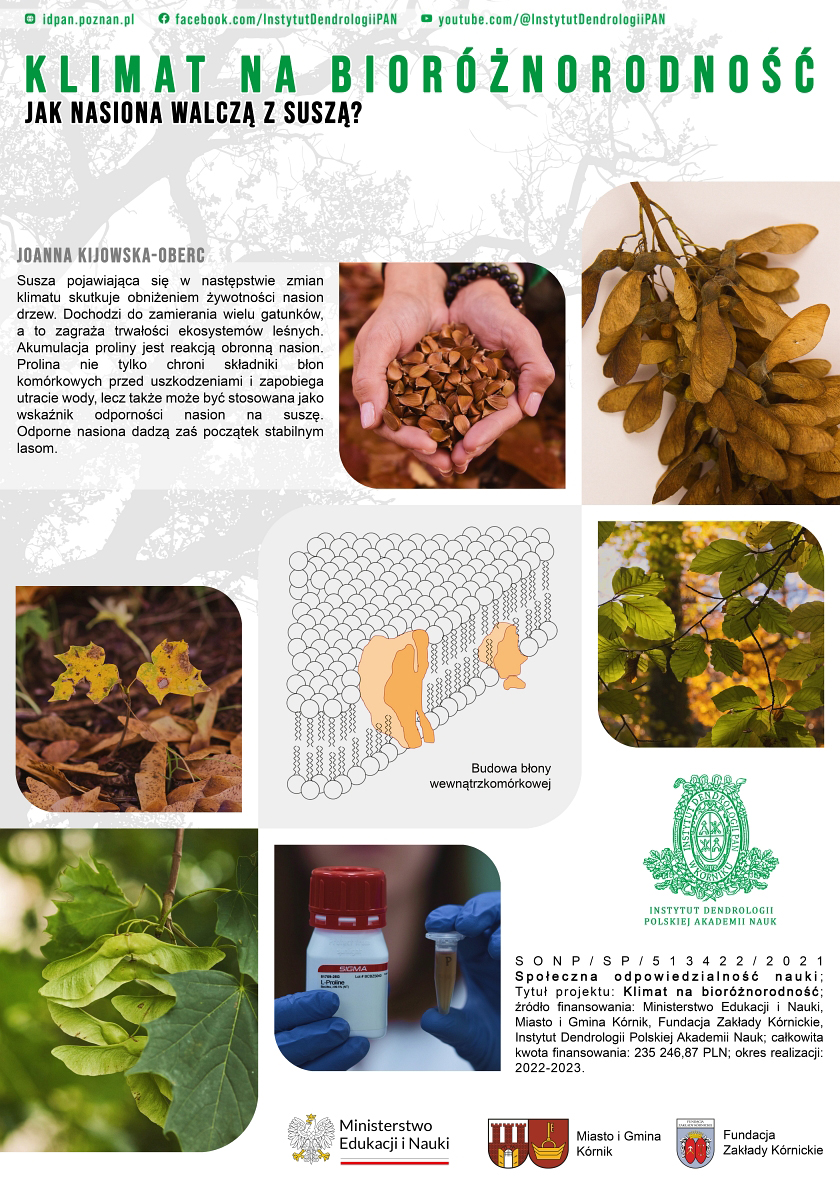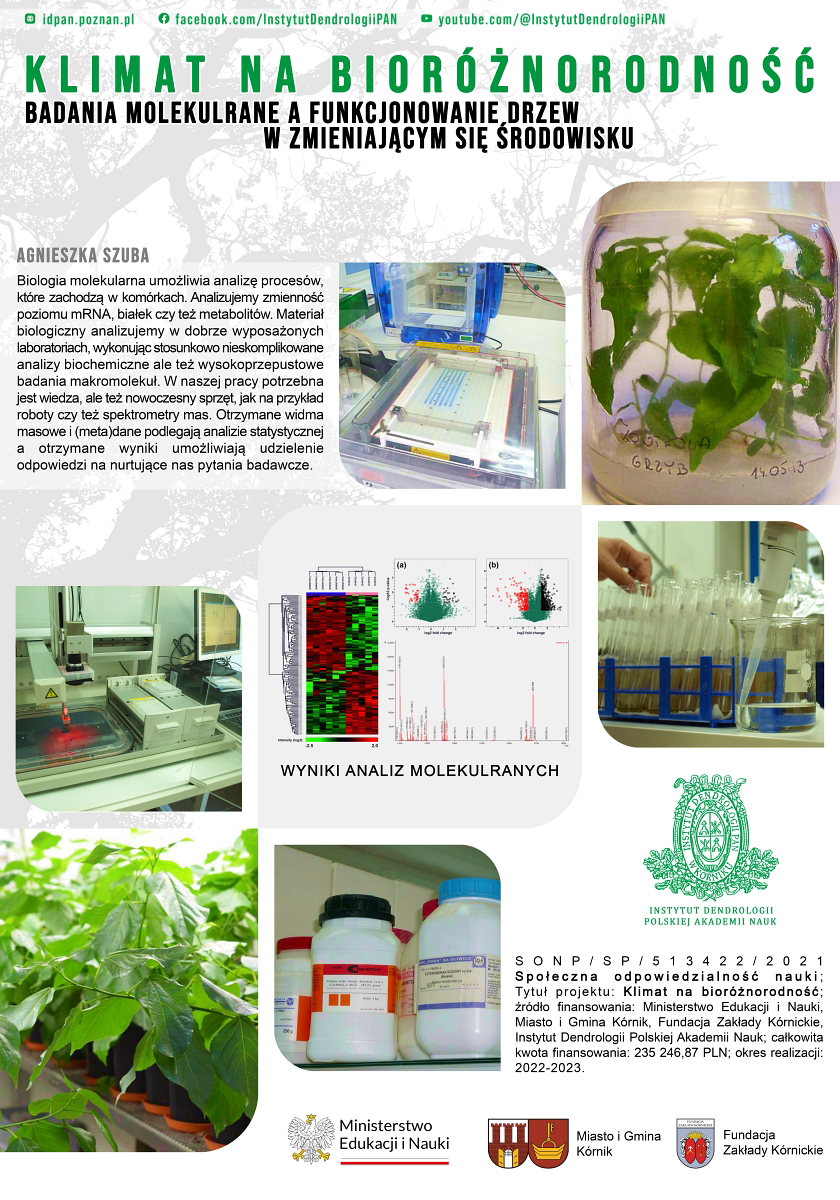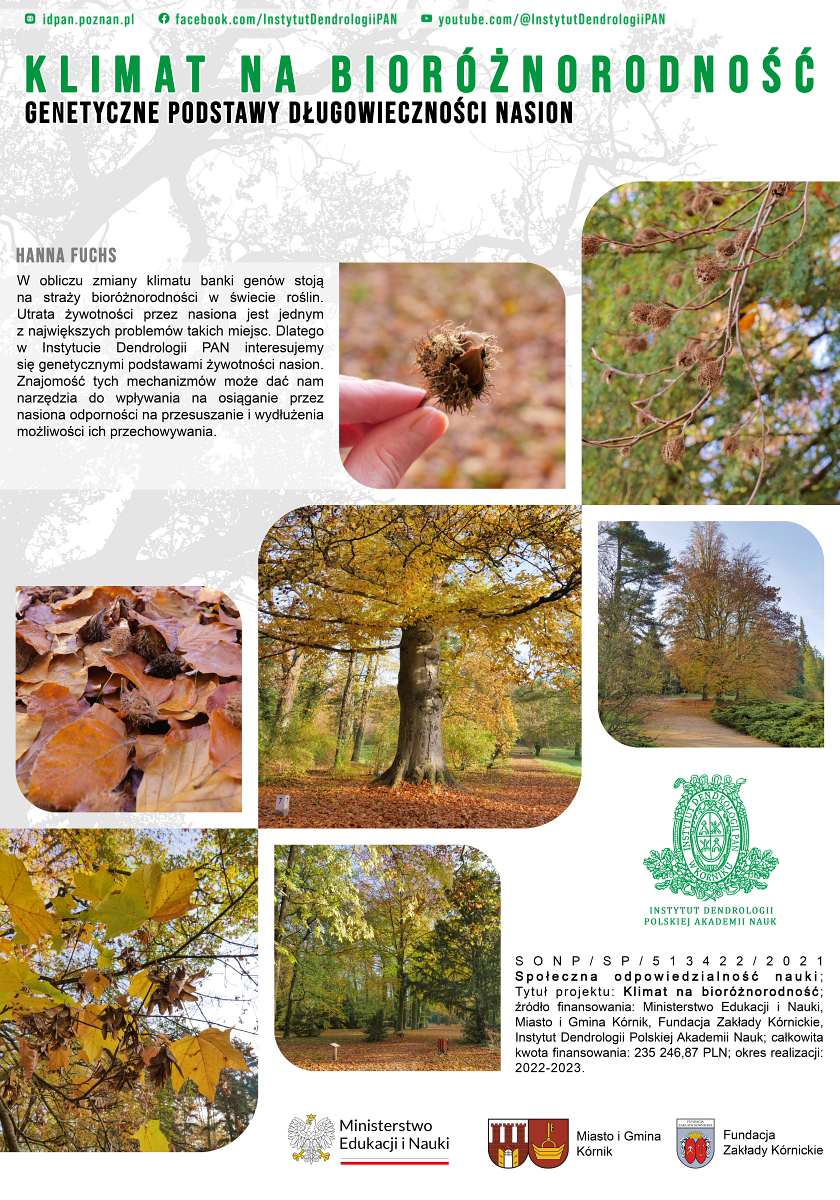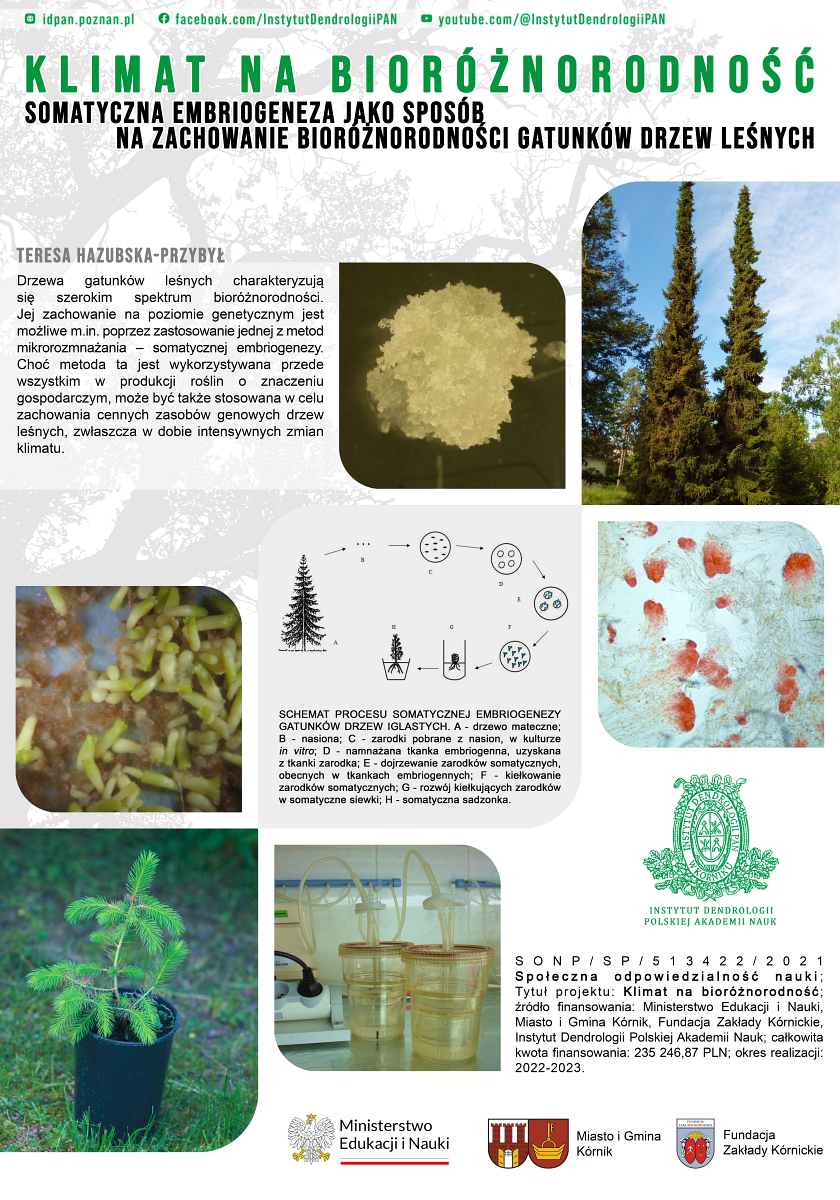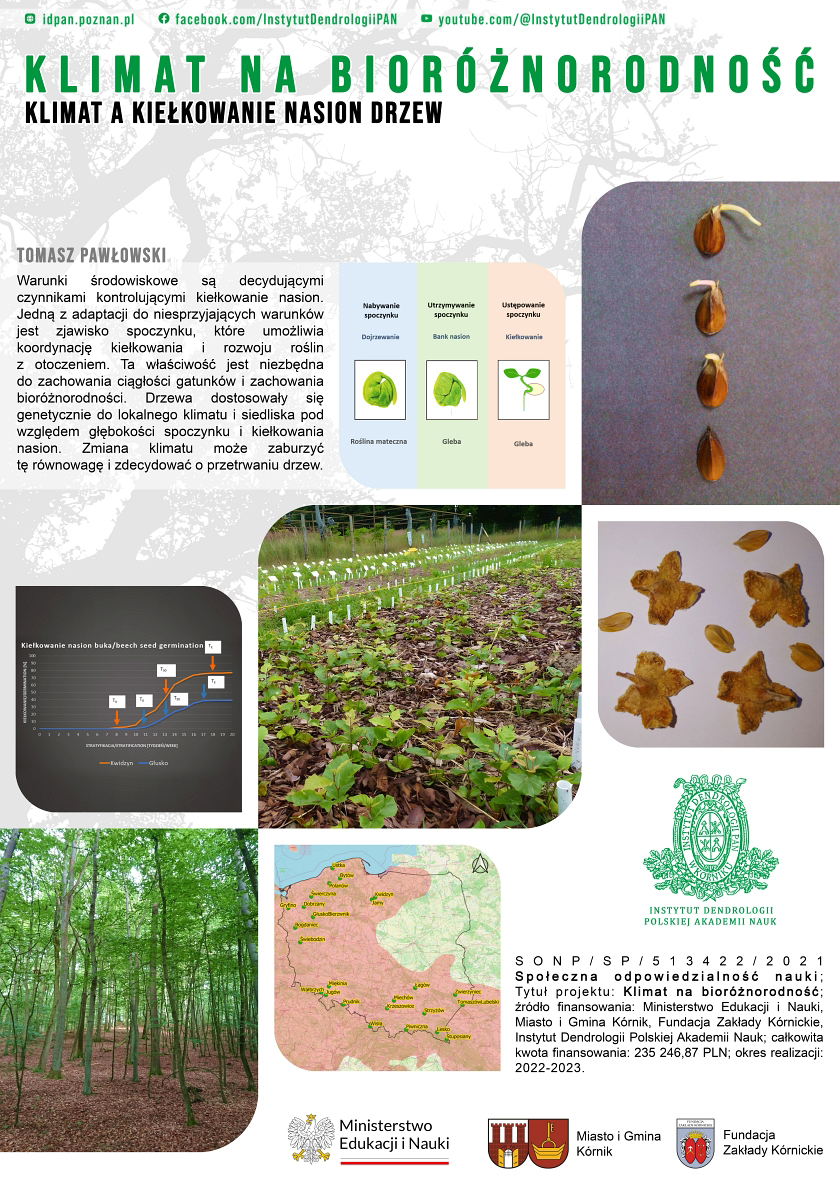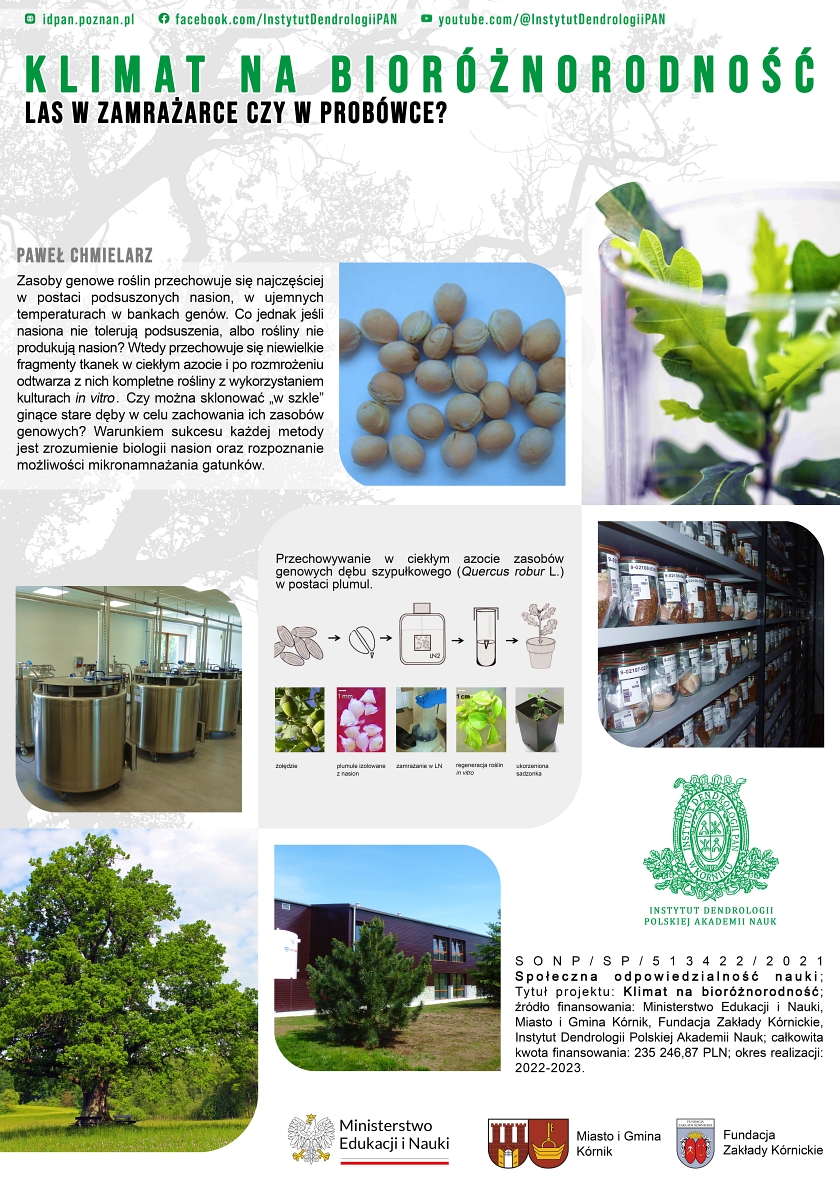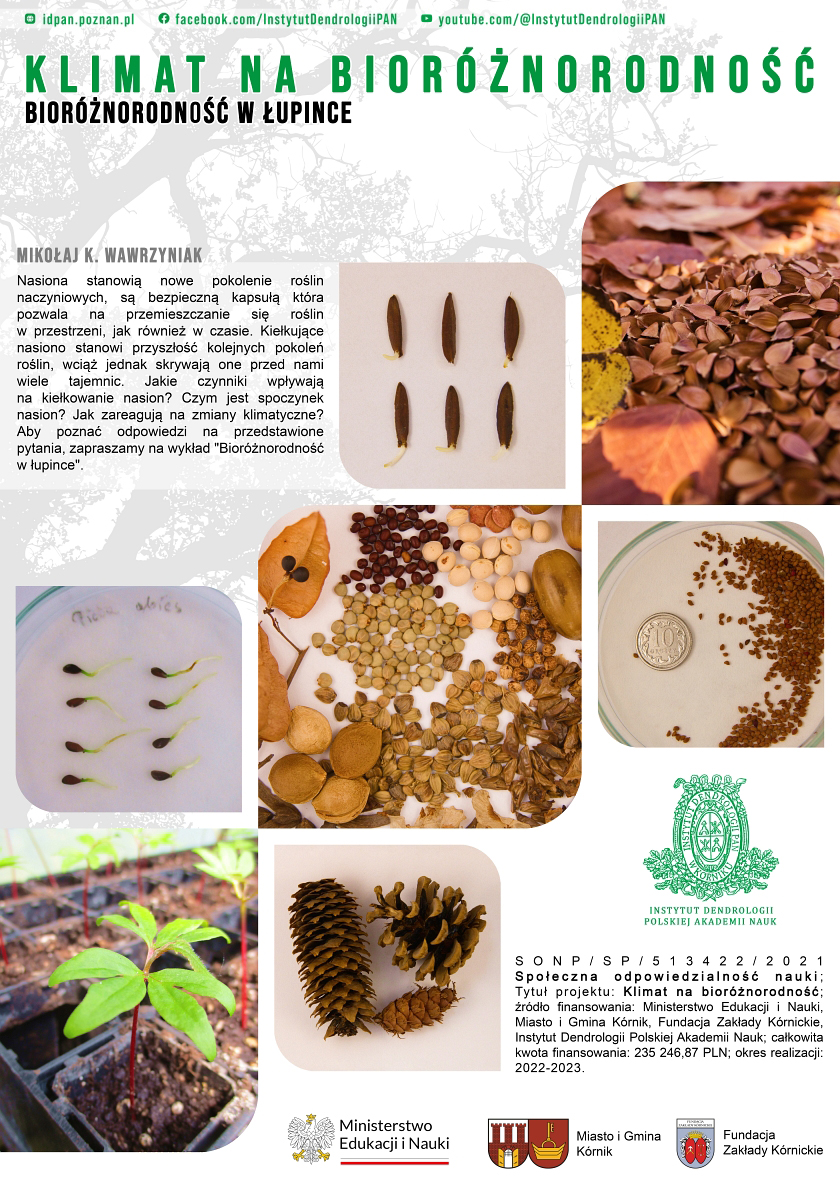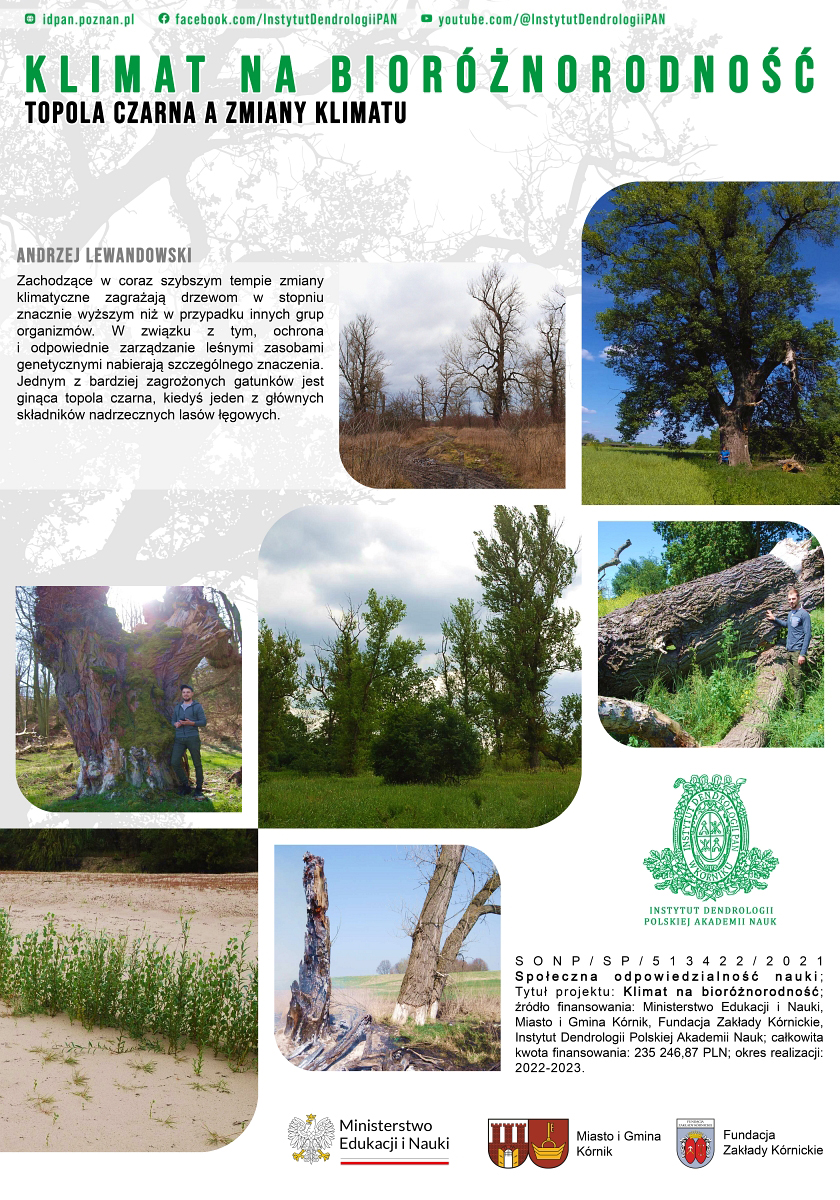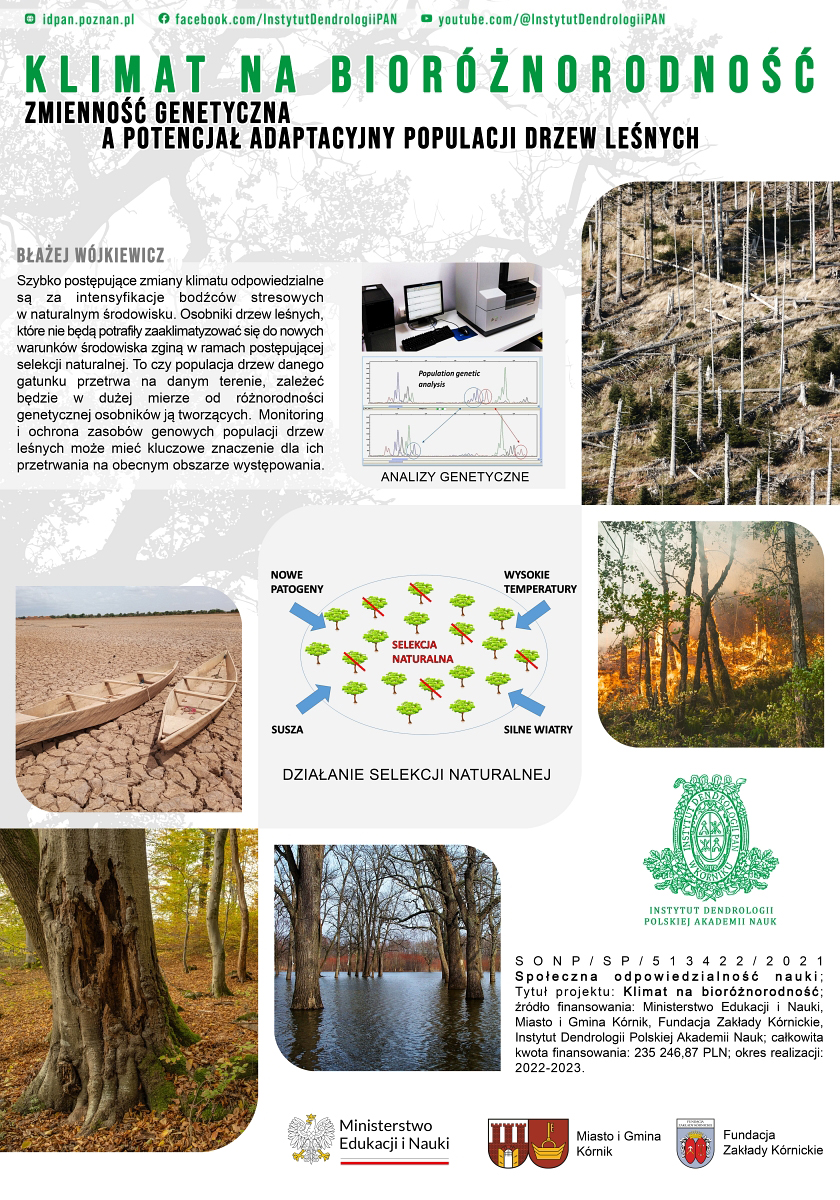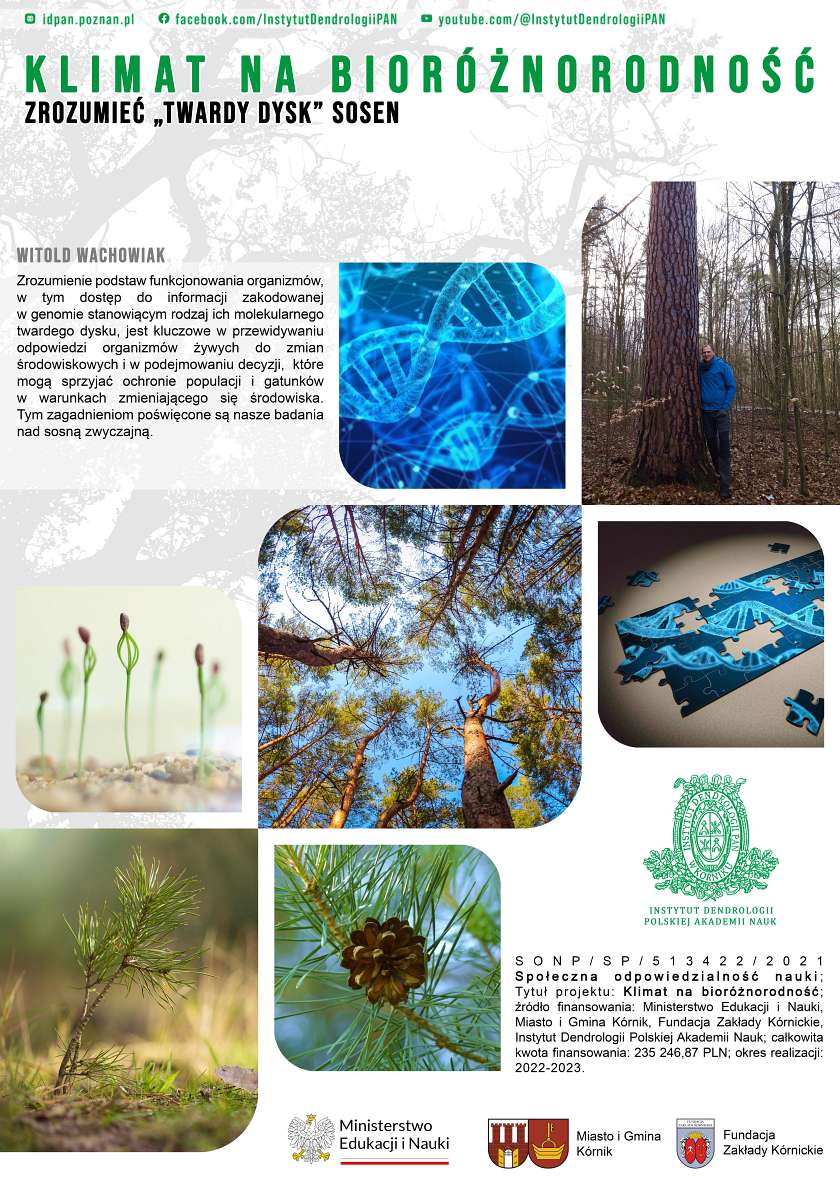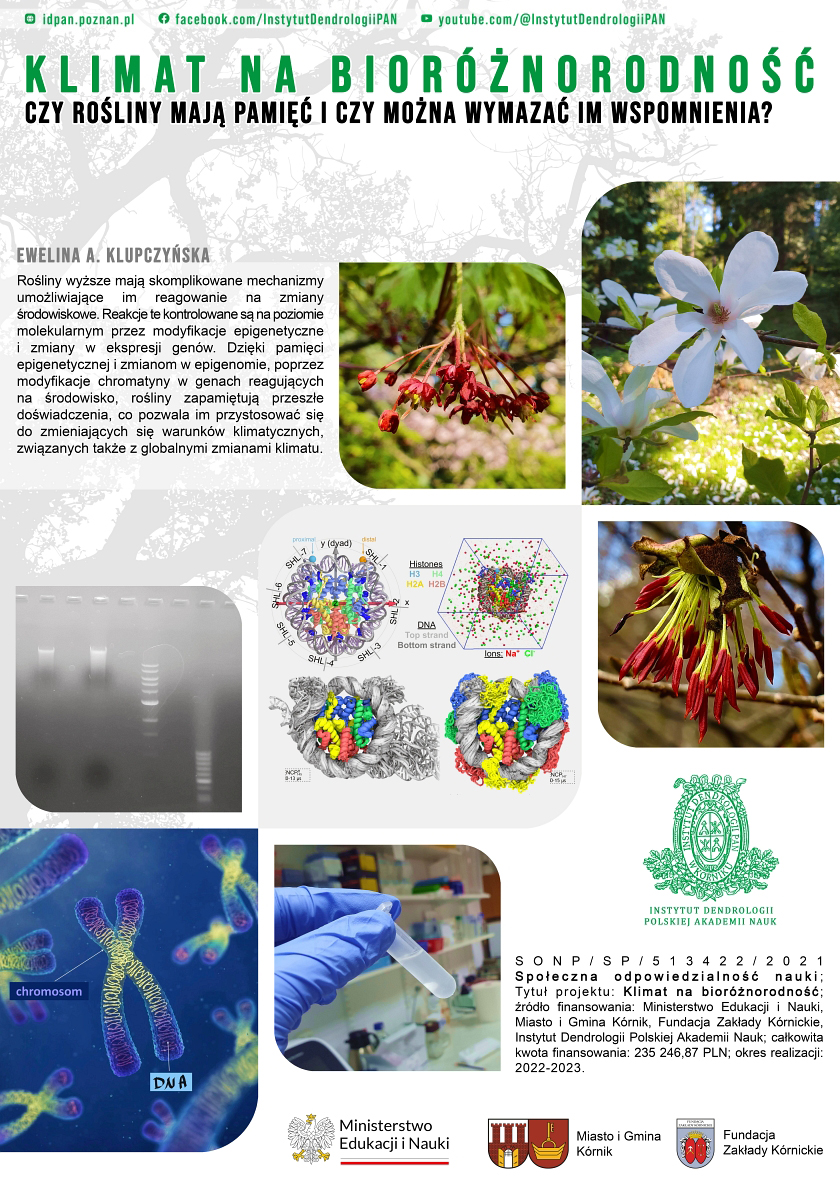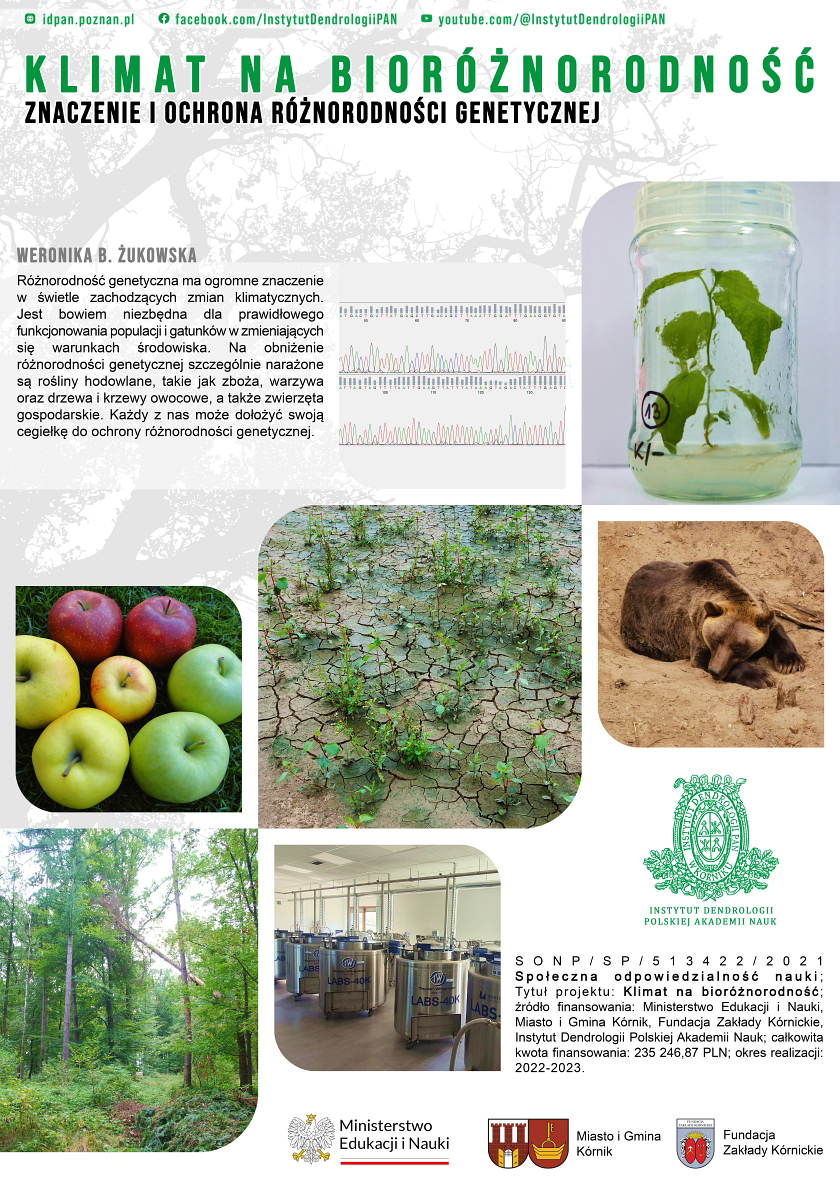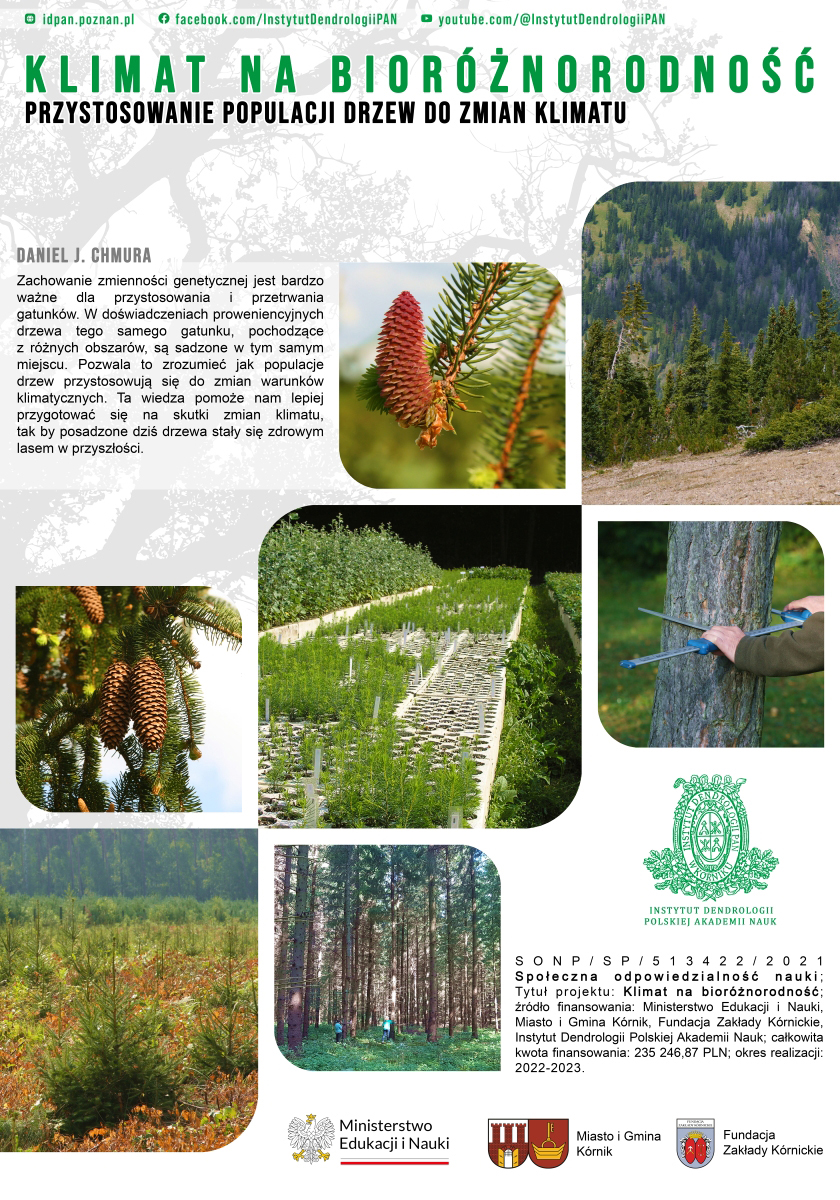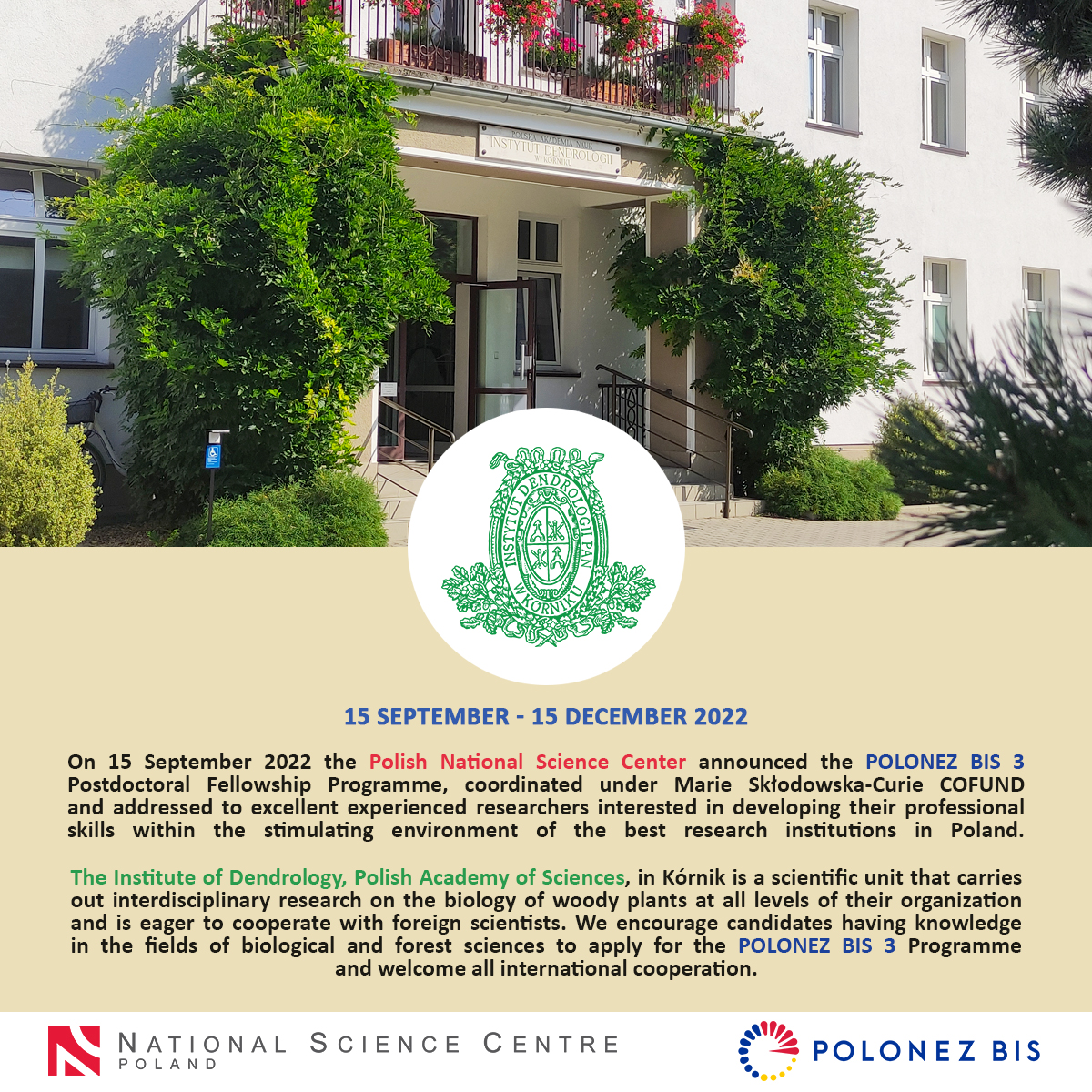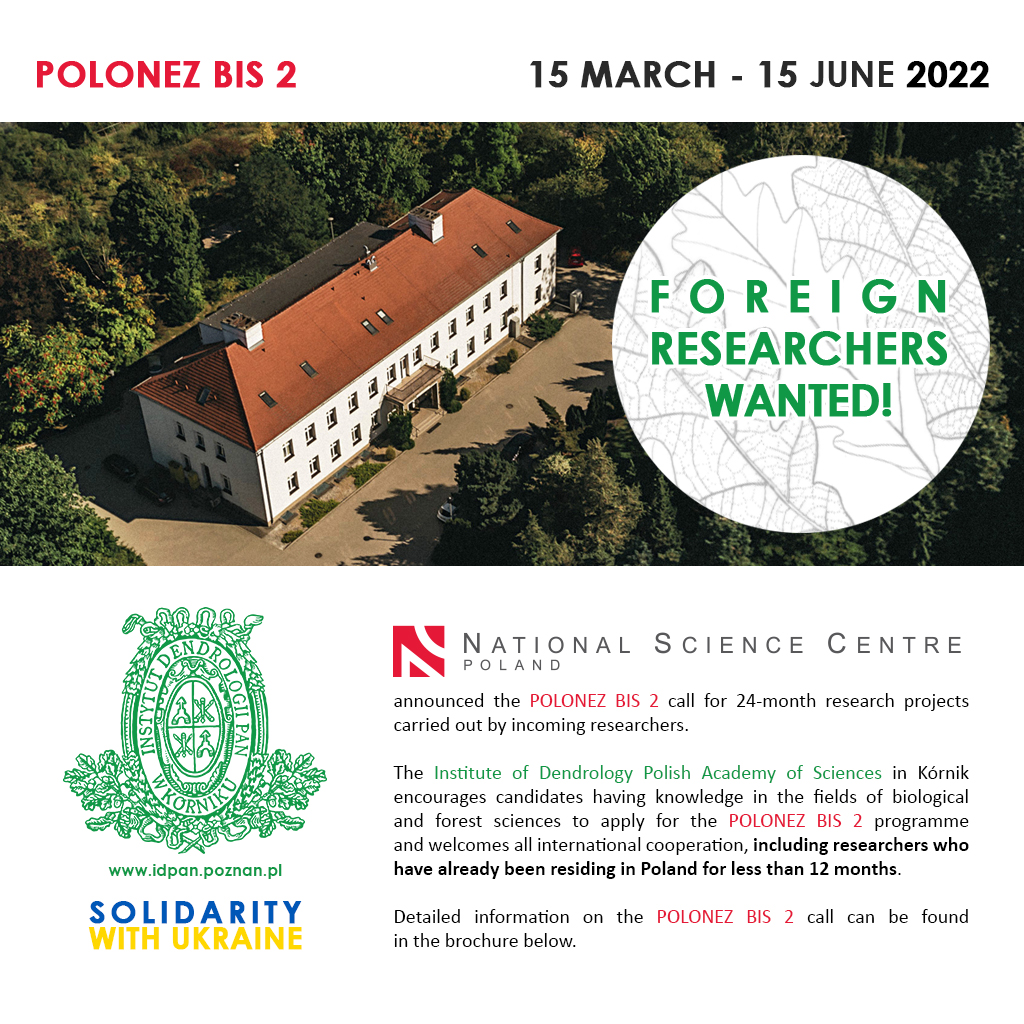HR Excellence in Research for the Institute of Dendrology, Polish Academy of Sciences

Our Institute has just been honored with the HR Excellence in Research award. This prestigious distinction is one of the actions of the European Commission under the Human Resources Strategy for Researchers. Thus, we have joined the group of 105 institutions possessing this prestigious award.
HR Excellence in Research is not only an honorable distinction but also an important commitment. Its aim is to continually enhance the attractiveness of working conditions and career development for researchers in the European Union. It is awarded to institutions that provide the best working conditions for researchers and conduct recruitment processes transparently and in accordance with the guidelines of the European Charter for Researchers and the Code of Conduct for the Recruitment of Researchers. Institutions that have obtained the HR logo are involved in an ongoing process that involves regular assessment of progress in implementing and adhering to the principles of the Charter and Code conducted by foreign experts appointed by the European Commission. The results of the experts' assessment determine whether the institution will maintain the HR distinction.
The basic documentation necessary for the evaluation of the Institute by the European Commission was prepared by the Working Group composed of: Dr. Karolina Sobierajska (Chair), Prof. Grzegorz Iszkuło, Prof. Witold M. Wachowiak, Prof. Tomasz Leski, Dr. Mikołaj Wawrzyniak, Mgr. Sonia Paź-Dyderska, Katarzyna Szwed-Pietras (gender equality delegate), Mgr. Magdalena Łukowiak, Mgr. Marta Idkowiak, and Mgr. Damian Maciejewski. Thank you for your involvement in preparing documents for the European Commission and for preparing, under the guidance of the Steering Committee, the proposed Action Plan for the years 2024-2026.
Andrzej M. Jagodziński
Director of the Institute
Institute of Dendrology PAS - 90 years
“Institute of Dendrology of the Polish Academy of Sciences – drawing on history, creating the future” – I cordially invite you to listen to a lecture presenting selected pages from the history of the Institute of Dendrology of the Polish Academy of Sciences over the last 90 years.
Prof. Andrzej M. Jagodziński
Director


International Scientific Conference for Young Scientists
„Research and Practice in Forest Ecology”
Kórnik, 8-12 May 2024
Dear Young Scientists,
we cordially invite you to participate in the International Conference “Research and Practice in Forest Ecology”, organized by the Institute of Dendrology, Polish Academy of Sciences, in Kórnik, Poland, on 8-12 May 2024. The aim of the Conference will be to discuss the results of research in the field of forest ecology, including changes in forest ecosystems in local, regional and global terms, as well as to outline directions and perspectives for new research (including interdisciplinary studies) and to establish cooperation between research centers. The Conference is addressed to young scientists: students, PhD students and researchers with doctoral diploma up to 7 years after graduation.
See you in Kórnik!
Prof. Andrzej M. Jagodziński
Director
![]()
NEW! Keynote Speakers
NEW! Workshops + Field Excursion
CLIMATE FOR BIODIVERSITY
We invite you to listen to Dr. Katarzyna Sękiewicz’s lecture entitled “Endemic species and climate change.”
Climate change is proceeding at an alarming rate, leading to a loss of biodiversity. An important component are endemic species, which are particularly vulnerable to these changes. Preservation and protection of endemic woody species is of the greatest concern. Due to their longevity, many trees may not be able to adapt to these changes. Therefore, the preservation of endemics that represent the unique biological heritage of an area is becoming a priority in global conservation strategy.
CLIMATE FOR BIODIVERSITY
We invite you to listen to Dr. Anna Napierała-Filipiak’s lecture entitled “Elm trees, biodiversity, climate.”
Elm trees significantly affect the forest ecosystem, shaping the forest litter and undergrowth. Research in the Netherlands on a species of mountain elm has identified 79 species of insects associated with it, highlighting its contribution to biodiversity. Graphiosis and climate change are severely limiting the resources of these trees. Prolonged summer droughts and extreme temperature fluctuations in January and February pose serious threats, negatively affecting seedling development, flowering and seed setting. Protecting against disease and adapting to a changing climate are becoming crucial to maintaining their ecosystem role.
CLIMATE FOR BIODIVERSITY
We invite you to listen to Dr. Krzysztof Ufnalski’s lecture entitled “Contribution of late wood in pines from Scandinavia.”
In 2012, Prof. Jacek Oleksyn organized an expedition to Scandinavia, continuing the research of Swedish scientist Nils Sylvén conducted 100 years ago. The characteristics of pine trees growing from the 56th to 68th degree of north latitude were analysed. Based on data collected from 53 plots, we analysed the characteristics of trees, taking into account age, width of annual growth, and the proportion of early and late wood. The study showed that the proportion of late wood in annual growth decreases in the northern direction, which may be due to the shorter growing season and lack of time for the maturation of late wood cells. The length of the growing season explains 48% of this variation. Average annual temperatures in the study areas explain 44% of the variation in the proportion of late wood.
CLIMATE FOR BIODIVERSITY
We invite you to listen to Prof. Adam Boratyński’s lecture entitled “Junipers around the Mediterranean.”
The juniper genus evolved before about 50-60 million years ago, under hot and dry climate conditions. Today, about 100 taxa of junipers are known, grouped into three sections that are the three oldest clades in molecular analysis. Junipers are light-demanding, drought-tolerant plants, with individual species adapted to broad range of temperatures. There are 20 species and subspecies of junipers around the Mediterranean, representing all 3 sections.
CLIMATE FOR BIODIVERSITY
We invite you to listen to Dr. Dominik Tomaszewski’s lecture entitled “Herbarium - a witness to biodiversity.”
A herbarium is a properly prepared, stored, and catalogued collection of preserved plants. By aggregating information from herbarium specimens into larger datasets, we gain insights into the distribution of various species. This provides us with a foundation for drawing conclusions about the functioning of nature, our impact on the environment, and the associated risks. Currently, there are approximately 400 million specimens in scientific institutions, and one of the most pressing tasks is to digitise these collections to make them accessible to all those interested.
CLIMATE FOR BIODIVERSITY
We invite you to listen to Dr. Marzenna Guzicka’s lecture entitled “Dormancy of tree buds in the age of climate change”.
The development of trees in temperate climates is synchronized with the course of the seasons. After the spring-summer period of activity comes the period of dormancy, which allows them to survive the unfavorable autumn-winter conditions. Dormancy is a very complex adaptive strategy and its obligatory stage is endodormancy. Climate change can disrupt its proper course and regulation, which can affect tree growth, reproduction and even survival.
CLIMATE FOR BIODIVERSITY
We invite you to listen to Dr. Emilia Pers-Kamczyc’s lecture entitled “Nitrogen deposition and biodiversity.”
Global population growth and changing life patterns are causing, among other things, an increase in the consumption of fossil fuels and an increase in the food demand. These processes lead to an increase in the amount of nitrogen (N) released into the environment, and consequently disrupt its natural circulation in nature. Nitrogen accumulation disrupts the stability and functioning of ecosystems and can contribute to changes in the patterns of many species. Thus, nitrogen deposition is becoming one of the most important global environmental problems.
CLIMATE FOR BIODIVERSITY
We invite you to listen to Dr. Kinga Nowak’s lecture entitled “(Bio)Diversity of botanical gardens.”
Botanical gardens perform a number of important functions, both for the scientific world and for the society at large. They provide a site for experimentation and research, a place for education, but also for rest and recreation. They are open to the needs of all, regardless of age, and it is up to us alone how we use them. We encourage you to watch the video, in which we will talk about the role of botanical gardens and their importance for biodiversity in light of ongoing climate change.
CLIMATE FOR BIODIVERSITY
We invite you to listen to Mr. Dawid Adamczyk’s, M.Sc., lecture entitled “Temperature changes and their impact on insects.”
Insects have mastered all environments: land, water and air, long before the appearance of man on Earth. With the increase in temperature, some species can populate an area where they did not previously exist, increase the number of generations per year, or expand their feeding preferences with new plant species. However, changes can also lead to the disappearance of insects in given ecological niches through unfavorable thermal conditions for them and their food plants.
CLIMATE FOR BIODIVERSITY
We invite you to listen to Ms. Sonia Paź-Dyderska’s, M.Sc., lecture entitled “Citizen science, or how to protect biodiversity on a daily basis.”
Loss of biodiversity is the greatest threat to the proper functioning of life on Earth. Citizen science is a valuable tool for protecting this diversity, involving the collection and analysis of environmental data by citizens who collaborate with scientists on various projects. One of the fastest-growing projects is iNaturalist, where users from around the world share their observations of plants, animals, and fungi.
CLIMATE FOR BIODIVERSITY
We invite you to listen to Dr. Mateusz Rawlik’s lecture entitled “Post-mining sites: from devastation to natural wealth”.
Open-pit mining of raw materials is associated with extensive changes to the natural environment. Forest reclamation is reduced to the introduction of tree seedlings, but the colonization of these afforestations by forest species is carried out through natural processes. The key feature that determines species richness and the circulation of matter in afforestations created by reclamation is the ability of trees to symbiotically bind atmospheric nitrogen. The vegetation of forests in post-mining areas resembles forestless areas. As time passes, these forests will become more similar to natural forests.
CLIMATE FOR BIODIVERSITY
We invite you to listen to Dr. Paweł Horodecki’s lecture entitled “Together or separately? How do we write guidelines for industrial site reclamation?”
Should post-industrial sites reclamation be based only on the Scots pine and the silver birch? Definitely not. The fertilization and productivity of habitats on devastated sites proceed much faster under the canopy of mixed stands. Promoting such stands also reduces the cultivation risks associated with the sensitivity of certain species to unfavorable habitat conditions. Pioneer pine and birch should be introduced only there, where other species will not survive.
CLIMATE FOR BIODIVERSITY
We invite you to listen to Dr. Mariola Rabska’s lecture entitled “The role of sex in plants in a changing environment.”
Of the various systems of sexual reproduction in plants, hermaphroditism, monoecy and dioecy are the most common. The latter system gives researchers the opportunity to see what consequences result from plants fulfilling the male role versus the female role. The environment, as well as the changing climate, can affect the different sexes in different ways, and species with diverse reproductive systems are affected differently.
CLIMATE FOR BIODIVERSITY
We invite you to listen to Prof. Marian Giertych’s lecture entitled “Life on an oak tree - a local biodiversity hotspot”.
A hotspot is a place characterized by high biodiversity. Such a name can be given to our oak trees - Quercus. The oak, as a long-lived tree, is a host plant for a whole range of other organisms to which it provides food. It is inhabited by hundreds, perhaps thousands, of species of insects, many mycorrhizal and parasitic fungi, oak mistletoe parasitize on the shoots, and acorns provide food for many species of mammals and birds.
CLIMATE FOR BIODIVERSITY
We invite you to listen to a lecture by Ms. Paulina Kościelniak, M.Sc., entitled “Different climate – different roots”.
Water is a key element for the survival of plants. Meanwhile, its shortage is becoming increasingly severe. Trees, however, have developed a whole range of mechanisms to avoid or tolerate drought. The root system's response to reduced water availability can therefore be a modulation of its architecture and biomass allocation in order to draw water from the near-surface soil layers, as well as directed growth toward water deposits located in deeper soil layers. Thus, plant survival will depend on the drought-coping strategies adopted.
CLIMATE FOR BIODIVERSITY
We invite you to listen to a lecture by Ms. Katarzyna Rawlik, M.Sc., entitled “Forest is not only trees. Plants of the forest herbaceous layer”.
The herbaceous layer is the lowest, ground-level of plants and fungi in the forest. In this layer of the forest, light is the main limiting factor for plant growth. The species composition of the herbaceous layer of forests throughout the globe is formed by a group of specialized taxa in which different strategies for coping with stress have been observed. The ecological importance of these plants in forest ecosystems is often underestimated and overlooked. Meanwhile, the contribution of herbaceous plants of the herbaceous understory layer to various ecological processes is only seemingly negligible.
CLIMATE FOR BIODIVERSITY
We invite you to listen to Prof. Joanna Mucha’s lecture entitled “Can climate change affect interactions between tree roots and fungi”.
Microorganisms inhabiting the roots and living in the soil affect the release and delivery of elements and water to tree roots. Changes in the roots also shape the communities of microorganisms inhabiting the root system. Root system-microorganism interactions can determine a species' adaptability and increase the chance of adapting to climate change.
CLIMATE FOR BIODIVERSITY
We invite you to listen to Dr. Marta Kujawska’s lecture entitled “How will climate change affect mushroom picking?”
Mushroom picking is a centuries-old traditional form of forest recreation in Poland. Many popular edible forest mushrooms are symbiotic fungal species related to specific tree species, e.g. pine, spruce, birch. It is predicted that the observed climate change may significantly affect the species structure of the forests we know, which in the future, may indirectly translate into the contents of the basket of future future mushroom pickers.
CLIMATE FOR BIODIVERSITY
We invite you to listen to Dr. Leszek Karliński’s lecture entitled “Extramatrical mycelium of mycorrhizal fungi in soil.”
Extramatrical mycelium (EM) is an important structural component of the symbiosis of mycorrhizal fungi with trees, significantly supporting their nutrition and development. EM accounts for 1/3 of the biomass of soil microorganisms. Participating in metabolic processes, it plays an essential role in the formation of stable forms of nitrogen and carbon in the soil, which is crucial for the Earth’s ecosystem. EM biomass is a sensitive indicator of the dynamics of environmental change.
CLIMATE FOR BIODIVERSITY
We invite you to listen to Dr. Robin Wilgan’s lecture entitled "Subterranean fungi and the changing climate."
Climate shapes the distribution of the majority of living organisms, also trees and fungi. Truffles, highly regarded fungi with hypogeous fruitbodies, live in symbiosis with the roots of trees, e.g. oaks, hazel and hornbeam. In Europe, truffles are harvested mainly in the south of the continent, where climate change threaten their future existence. Concurrently, climate change creats suitable conditions for the development of truffles in Central Europe, including Poland.
CLIMATE FOR BIODIVERSITY
We invite you to listen to Prof. Maria Rudawska’s lecture entitled “Where the forest begins. On mycorrhizae in forest nurseries.”
Every year, field forest nurseries often called bare-root forest nurseries, produce millions of seedlings for reforestation and afforestation. The high success rate of reforestation and afforestation depends on the quantitative and qualitative structure of mycorrhizae set up during the growth of seedlings in the forest nursery. Mycorrhizae increase the supply of water and nutrients to seedlings and also protect them from pathogens. More than 90 species of ectomycorrhizal fungi have been identified on nine tree species in bare-root forest nurseries in Poland.
CLIMATE FOR BIODIVERSITY
We invite you to listen to Prof. Tomasz Leski’s lecture entitled “Forest without fungi. Is it possible?”
Fungi are characterized not only by great morphological diversity, but first of all functional diversity. This diversity of functions performed by saprobiontic, symbiotic (including mycorrhizal) and pathogenic fungi determines the flow of matter and energy in the forest ecosystem, provision of water and minerals to plants, as well as the health status of trees. As a result, fungi are considered as a key group of organisms that ensure the development and functioning of forests.
CLIMATE FOR BIODIVERSITY
We invite you to listen to Prof. Marcin Pietras’s lecture entitled “Climate and the diversity and distribution of fungi.”
Climate is one of the most important factors determining the distribution of organisms. Climate changes can affect the abundance and geographic range of species. On the other hand, they can also accelerate the spread of certain organisms, including invasive species. The changes caused by climate change observed in both species richness and distribution particularly affect fungi - the most diverse group of organisms.
CLIMATE FOR BIODIVERSITY
We invite you to listen to Dr. Piotr Kosiński’s lecture entitled “Brambles in the plant cover of Poland."
There are more than 760 species of brambles in Europe, with about 110 species found in Poland. Brambles play a significant role in enhancing the biodiversity of forest ecosystems. Interestingly, it is not uncommon for the number of bramble species within a forest to exceed the combined count of all other tree and shrub species. However, despite their ecological diversity, many forestry studies tend to classify all European brambles under a single species (Rubus fruticosus).
CLIMATE FOR BIODIVERSITY
We invite you to listen to Prof. Grzegorz Iszkuło’s lecture entitled “Common Mistletoe. Robin Hood or Dracula?”
We are currently observing more and more of the mistletoe. This semi-parasite has adapted well to the environment altered by humans and grows very well in parks or alleys. Global warming also favors mistletoe in its march to the east and north of Europe. However, the species is evaluated very ambiguously by people. Often negatively, by comparing it to Count Dracula, who sucks the life out of trees. But by others it is treated positively, as the Robin Hood of ecosystems. So is the mistletoe a vampire or Robin Hood?
CLIMATE FOR BIODIVERSITY
We invite you to listen to Dr. Łukasz Walas’ lecture entitled “Horse chestnut - a relic from the Balkan Peninsula”.
The homeland of the horse chestnut is the Balkan Peninsula. It was most likely brought to Poland by King Stefan Batory as early as the 16th century. Today, natural populations are threatened with extinction due to disease, pests, climate change and human pressure. Winter conditions, especially precipitation, are decisive for the horse chestnut's existence. In situ conservation, enriched with assisted migration, will play an important role in the survival of this species.
CLIMATE FOR BIODIVERSITY
We invite you to listen to Prof. Marcin K. Dyderski’s lecture entitled “Invasive plant species - what helps their expansion?”
Biological invasions are one of the main threats to biodiversity and the economy. Their success depends on factors that can be divided into those related to the characteristics of a particular species, the availability of seeds and the characteristics of the environment. On a continental scale, the main determinant of species distribution is climate. Its changes can cause both the loss of the climatic optimum of currently existing species and open the way for others to conquer further areas.
CLIMATE FOR BIODIVERSITY
We invite you to listen to Prof. Ewelina Ratajczak’s lecture entitled “Will stressed seeds provide us with a better future?"
We are observing rapid climate changes that cause stress to trees. This is due to the fact that they induce an oxidative stress condition, which lowers the metabolic activity of plant cells. Stressed trees produce stressed seeds, whose viability is reduced. Storing seeds in a way that preserves their viability becomes crucial for safeguarding the genetic resources of tree species and protecting biodiversity in commercial forests.
CLIMATE FOR BIODIVERSITY
We invite you to listen to Prof. Ewa M. Kalemba’s lecture entitled “From seed germination to plant formation. The different sides of reactive oxygen species”.
All plants, including trees, go through growth stages. A seed germinates and a seedling is formed, which after many years of vegetative growth will give rise to a tree capable of flowering and producing its own fruit with seeds. Plant functioning is controlled by hormones interacting with reactive oxygen species, which regulate the growth and development of plant organs (roots, leaves, flowers), seed germination, aging and response to stress conditions.
CLIMATE FOR BIODIVERSITY
We invite you to listen to Ms. Joanna Kijowska-Oberc’s, M.Sc., lecture entitled “How do seeds fight drought?”
Drought occurring in the wake of climate change results in a decrease in the viability of tree seeds. The extinction of many species occurs, and this threatens the sustainability of forest ecosystems. The accumulation of proline is a defense reaction of seeds. Proline not only protects cell membrane components from damage and prevents water loss, but can also be used as an indicator of seed resistance to drought. Resilient seeds, in turn, will give rise to stable forests.
CLIMATE FOR BIODIVERSITY
We invite you to listen to Dr. Agnieszka Szuba’s lecture entitled “Molecular research and the functioning of trees in a changing environment”.
Molecular biology allows the analysis of processes that take place in cells. We examine variability of mRNA, protein or metabolite levels. Biological material is analysed in well-equipped laboratories, performing relatively uncomplicated biochemical analyses, but also high-throughput macromolecule studies. Our work requires knowledge, but also modern equipment, such as robots or mass spectrometers. The obtained mass spectra and (meta)data are subjected to statistical analysis and the obtained results allow us to answer our research questions.
CLIMATE FOR BIODIVERSITY
We invite you to listen to Dr. Hanna Fuchs’s lecture entitled “Genetic basis of seed longevity”.
In the face of climate change, gene banks uphold the biodiversity of the plant world. Seed viability loss is one of the biggest problems of such places. Therefore, at the Institute of Dendrology, Polish Academy of Sciences, we are interested in the genetic basis of seed longevity. Knowledge of these mechanisms can give us the tools to influence seeds to achieve tolerance to desiccation and extend their storability.
CLIMATE FOR BIODIVERSITY
We invite you to listen to Dr. Teresa Hazubska-Przybył’s lecture entitled “Somatic embryogenesis as a way to preserve the biodiversity of forest tree species”.
Trees of forest species are characterized by a wide spectrum of biodiversity. Its preservation at the genetic level is possible, for instance, by using one of the methods of micropropagation - somatic embryogenesis. Although this method is used primarily in the production of economically important crops, it can also be used to preserve the valuable gene resources of forest trees, especially in times of intense climate change.
CLIMATE FOR BIODIVERSITY
We invite you to listen to Prof. Tomasz Pawłowski’s lecture entitled “Climate and tree seed germination.”
Environmental conditions are critical factors controlling seed germination. One of the adaptations to unfavourable conditions is the phenomenon of dormancy, which allows plant germination and development to be coordinated with the environment. This property is essential for species continuity and the preservation of biodiversity. Trees have genetically adapted to the local climate and habitat in terms of the depth of dormancy and seed germination. Climate change can disrupt this balance and determine the survival of trees.
CLIMATE FOR BIODIVERSITY
We invite you to listen to Prof. Paweł Chmielarz’s lecture entitled “Forest in the freezer or in a test tube?”
Genetic resources are usually stored as desiccated seeds, at negative temperatures in gene banks. But what if the seeds are intolerant to desiccation or the plants fail to develop seeds? Then one preserves small tissue fragments in liquid nitrogen that, after defrosting, can be used to cultivate complete plants via in vitro cultures. Can dying old oak trees be cloned 'in glass' to preserve their gene pool? A prerequisite for the success of any method is to understand the biology of the seeds and to recognise the potential for micro-propagation of species.
CLIMATE FOR BIODIVERSITY
We invite you to listen to Dr. Mikołaj K. Wawrzyniak’s lecture entitled “Biodiversity in a nutshell”.
Seeds represent a new generation of vascular plants, a safe capsule that allows plants to travel in space as well as in time. The germinating seed represents the forthcoming generation of plants, yet they still hold many secrets. Which factors affect seed germination? What is seed dormancy? How do they respond to climate change? To learn the answers to these questions, we invite you to the lecture "Biodiversity in a nutshell".
CLIMATE FOR BIODIVERSITY
We invite you to listen to Prof. Andrzej Lewandowski’s lecture entitled “Black poplar and climate change”.
Accelerating climate change endangers trees to a much greater extent than other groups of organisms. As a result, the preservation and responsible management of forest genetic resources are becoming increasingly important. One of the more endangered species is the disappearing black poplar, which was once one of the major components of riverside riparian forests.
CLIMATE FOR BIODIVERSITY
We invite you to listen to Dr. Błażej Wójkiewicz’s lecture entitled “Genetic variability and adaptive potential of forest tree populations”.
Rapidly advancing climate change is responsible for intensifying stressful stimuli in the natural environment. Forest trees that fail to adapt to the new environmental conditions will perish under progressive natural selection. The genetic diversity of the individuals that make up a population of trees of a particular species will be a major determinant of whether or not it survives in a particular area. Monitoring and preserving the genetic resources of forest tree populations can be critical to their survival in their current habitats.
CLIMATE FOR BIODIVERSITY
We invite you to listen to Prof. Witold Wachowiak’s lecture entitled “Understanding the hard drive of pines”.
Understanding the genetic basics of how organisms function, including access to the information encoded in the genome, which acts as their molecular hard drive, is essential in predicting the response of living organisms to environmental changes and in making decisions in favour of the preservation of populations and species under changing environmental conditions. Our research on Scots pine is dedicated to these issues.
CLIMATE FOR BIODIVERSITY
We invite you to listen to Dr. Ewelina A. Klupczyńska’s lecture entitled “Do plants have memory and can it be erased?”
Higher plants have complex mechanisms that enable them to respond to environmental changes. These reactions are controlled at the molecular level by epigenetic modifications and variations in gene expression. Due to epigenetic memory and epigenome changes, through chromatin modifications in environmentally responsive genes, plants are able to remember past experiences, which allows them to adapt to changing climatic conditions, also linked to global climate change.
CLIMATE FOR BIODIVERSITY
We invite you to listen to Dr. Weronika B. Żukowska’s lecture entitled “Significance and conservation of genetic diversity”.
Genetic diversity is of great importance in light of ongoing climate changes. It is essential for the proper functioning of populations and species in changing environmental conditions. Livestock and crops like grains and vegetables, as well as fruit trees and shrubs, are particularly vulnerable to genetic diversity loss. However, we can all contribute to the protection of genetic diversity.
CLIMATE FOR BIODIVERSITY
We invite you to listen to Prof. Daniel J. Chmura’s lecture entitled “Adaptation of tree populations to climate change”.
The conservation of genetic diversity is crucial for the adaptation and survival of species.
In provenance experiments, trees of the same species originating from different areas are planted in the same location. This allows us to understand how tree populations adapt to changing climatic conditions. The ability to better anticipate the effects of climate change will help us to plant trees today that will grow into a healthy forest in the future.
Carry out your research project at the Institute of Dendrology PAS

Carry out your research project at the Institute of Dendrology, Polish Academy of Sciences, during 12 months of full-time employment - a competition organized by the National Research Centre
The Institute of Dendrology, Polish Academy of Sciences, invites scientists who wish to continue their research work at the Institute.
We encourage you to familiarize yourself with the competition proposed by the National Science Centre (link: https://www.ncn.gov.pl/ogloszenia/konkursy/program-dla-naukowcow-z-ukrainy)
and the scope of activities of the Institute of Dendrology, Polish Academy of Sciences (pdf attached).
We will support you in writing your project application. If you are interested, please contact the Department of Scientific Information at Ten adres pocztowy jest chroniony przed spamowaniem. Aby go zobaczyć, konieczne jest włączenie w przeglądarce obsługi JavaScript..
PASIFIC at the Institute of Dendrology PAS

We are happy to announce that the PASIFIC Call 1 is now open!
The Call for Proposals runs from 15 March 2021 to 30 June 2021.
Please watch the inviting speech by Prof. Paweł Rowiński, Vice-President of the Polish Academy of Sciences and PASIFIC Coordinator: https://youtu.be/jBoUeL5-f1I
Interested scholars of any nationality and representing all research disciplines can apply for attractive 2-year postdoctoral fellowships at the Institute of Dendrology of the Polish Academy of Sciences.
The PASIFIC fellows will be offered a monthly allowance of approx. €2,500 net. Those, who decide to come to Poland together with their families, may be entitled to an additional family allowance. In addition, they will be granted a research budget of up to €93,000 (€60,000 direct costs and 20% indirect costs).
To apply for the PASIFIC fellowships, candidates must be in possession of at least a doctoral degree or have 4 years of full-time equivalent research experience. Also, they must comply with the MSCA mobility rule and have not lived and worked in Poland for more than 12 months during the three years prior to the call’s deadline (July 1st, 2018 – June 30th, 2021).
More information: https://pasific.pan.pl/call-1/
Potential supervisors: https://pasific.pan.pl/supervisors-from-institute-of-dendrology/
PASIFIC Navigator: Prof. Marcin Zadworny Ten adres pocztowy jest chroniony przed spamowaniem. Aby go zobaczyć, konieczne jest włączenie w przeglądarce obsługi JavaScript.
Andrzej M. Jagodziński
Director of the Institute




